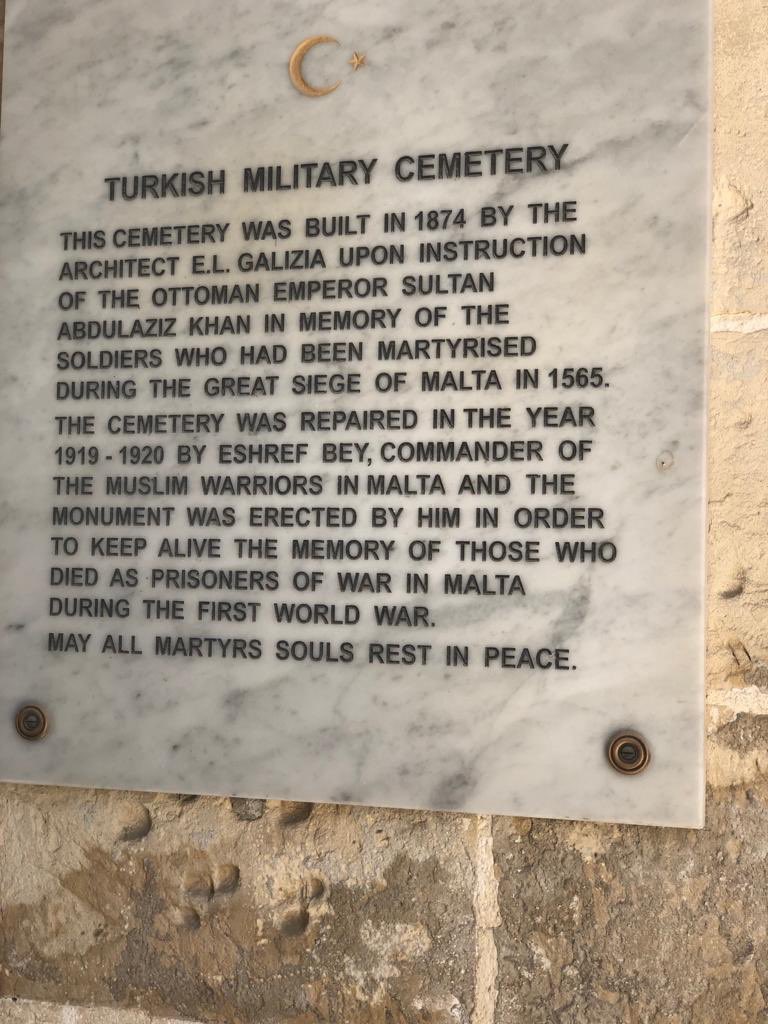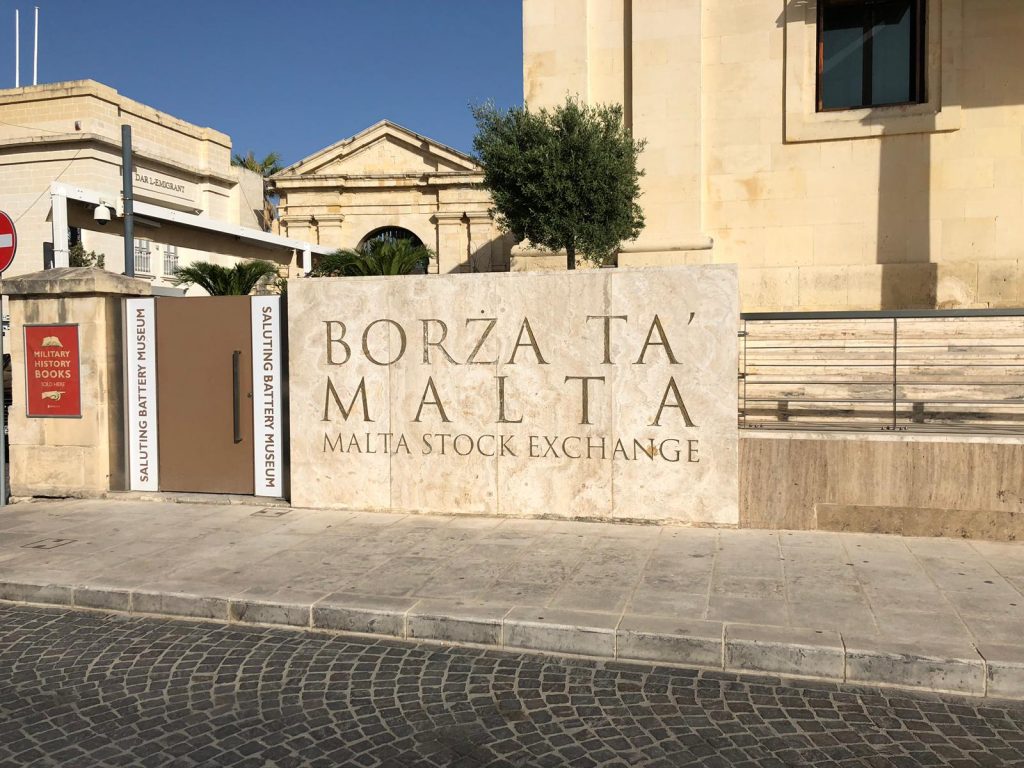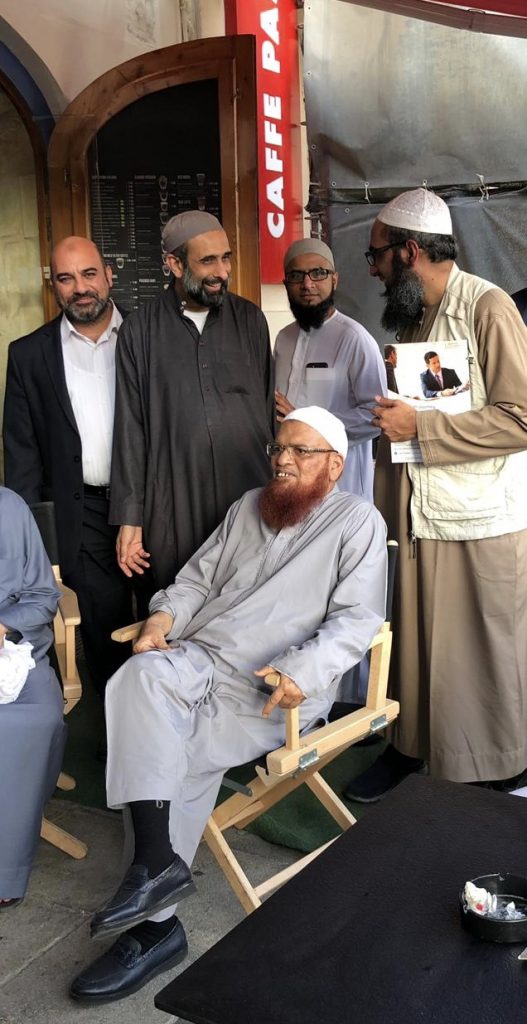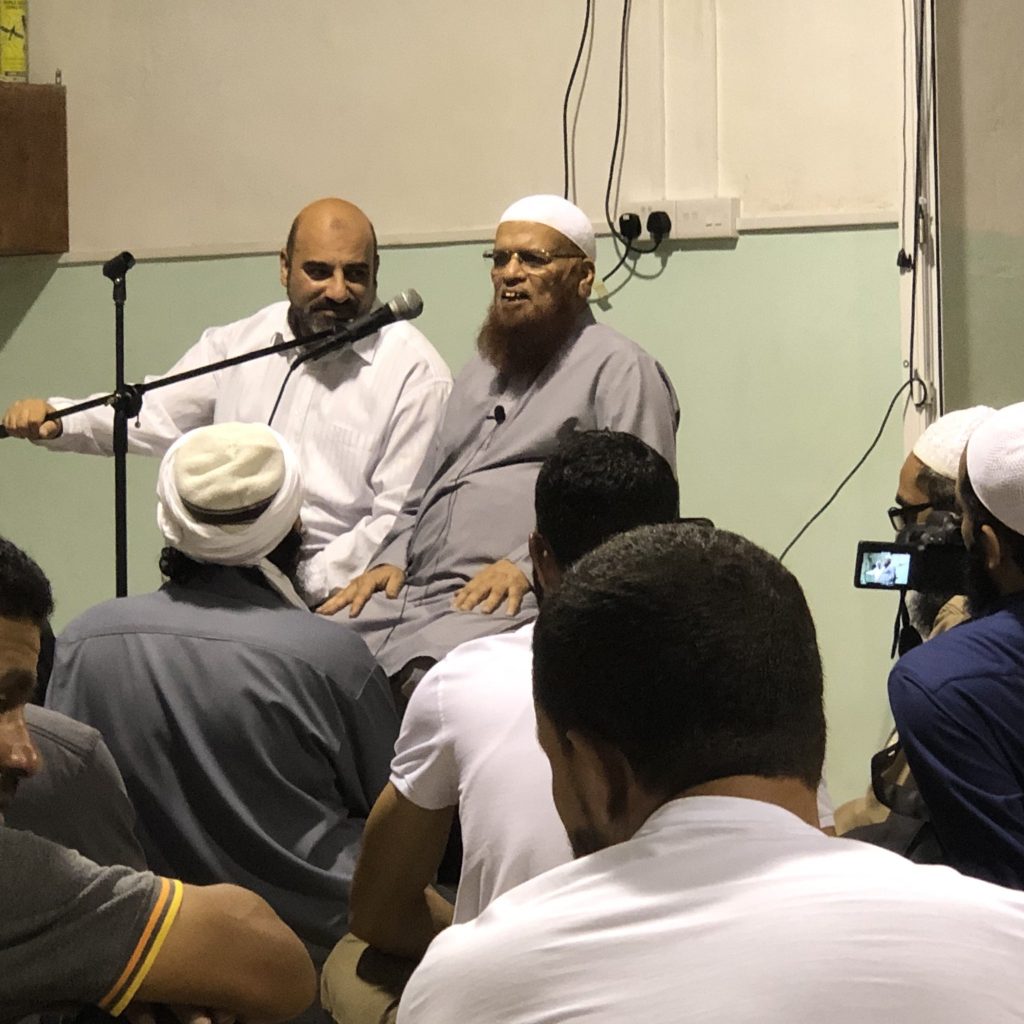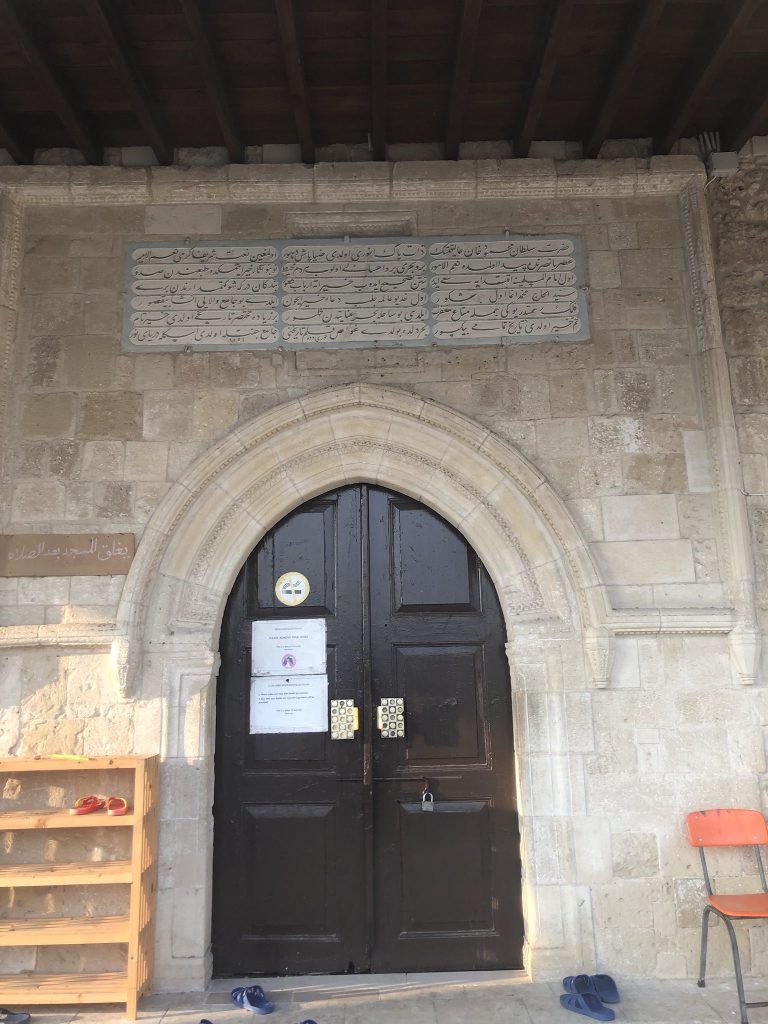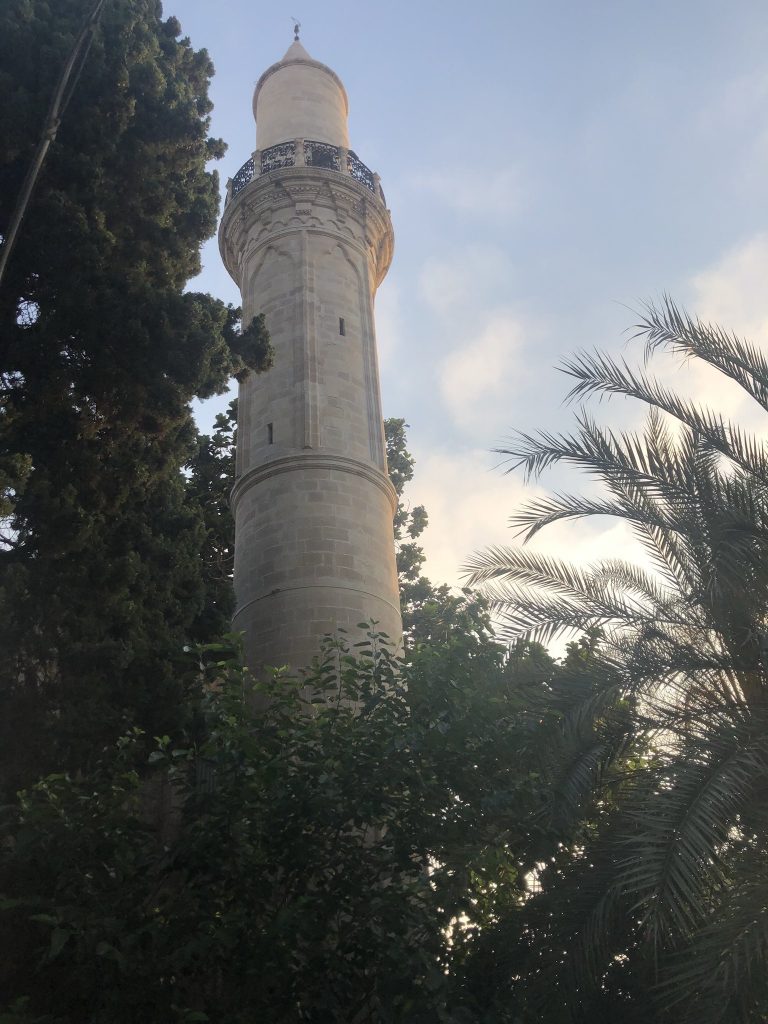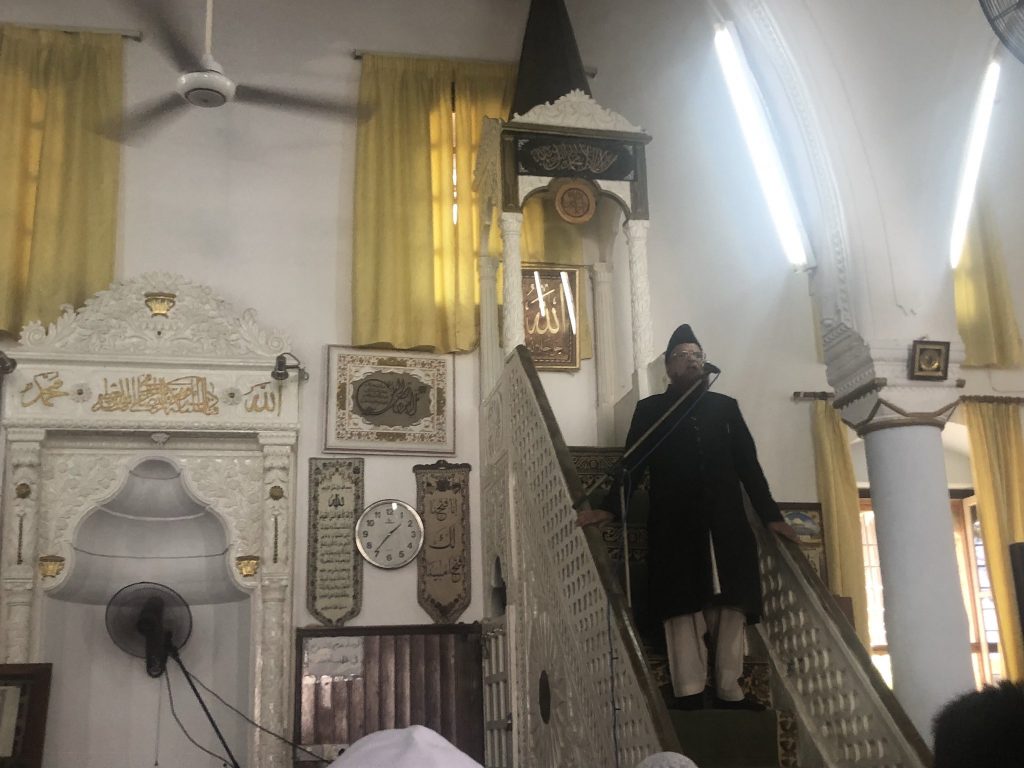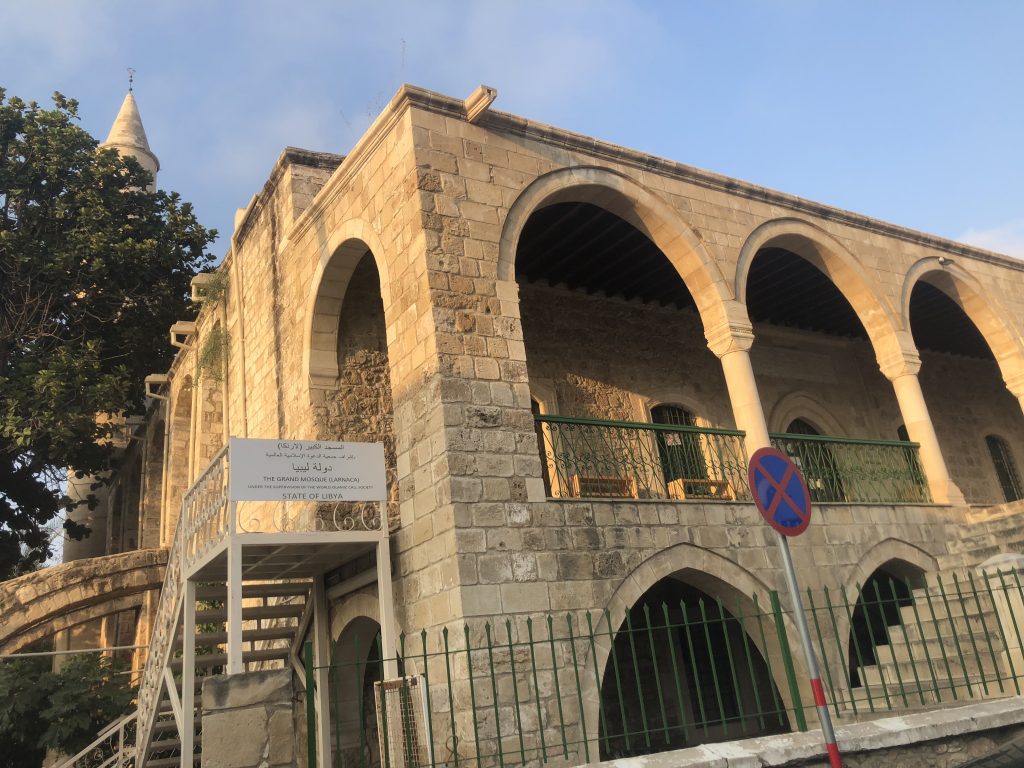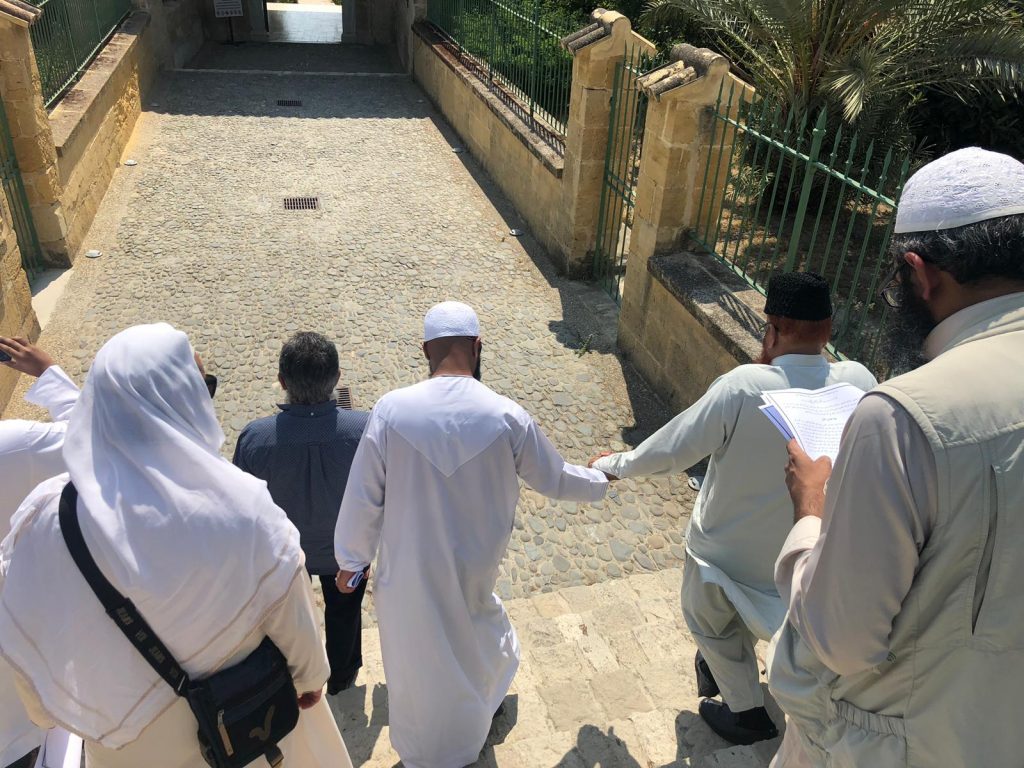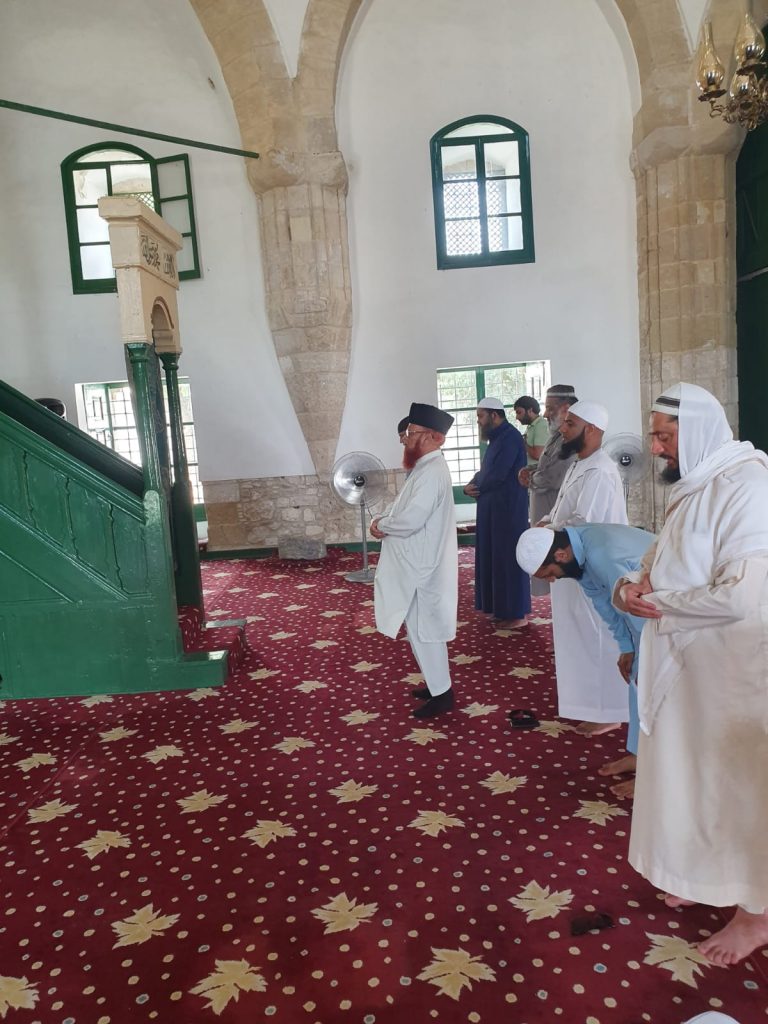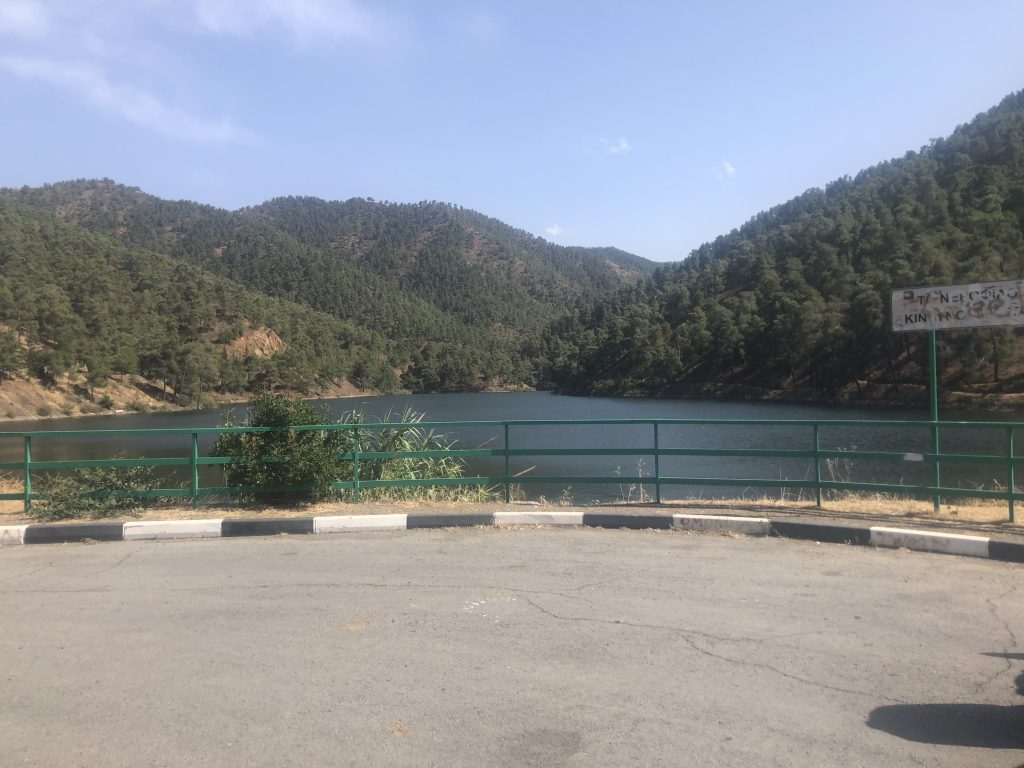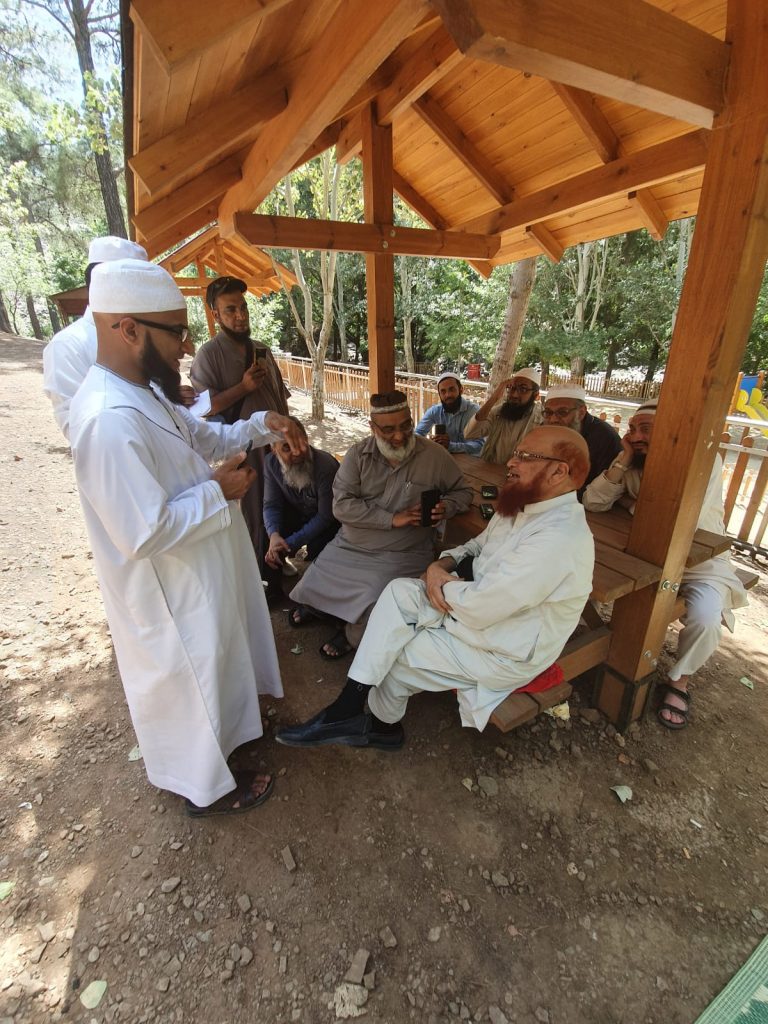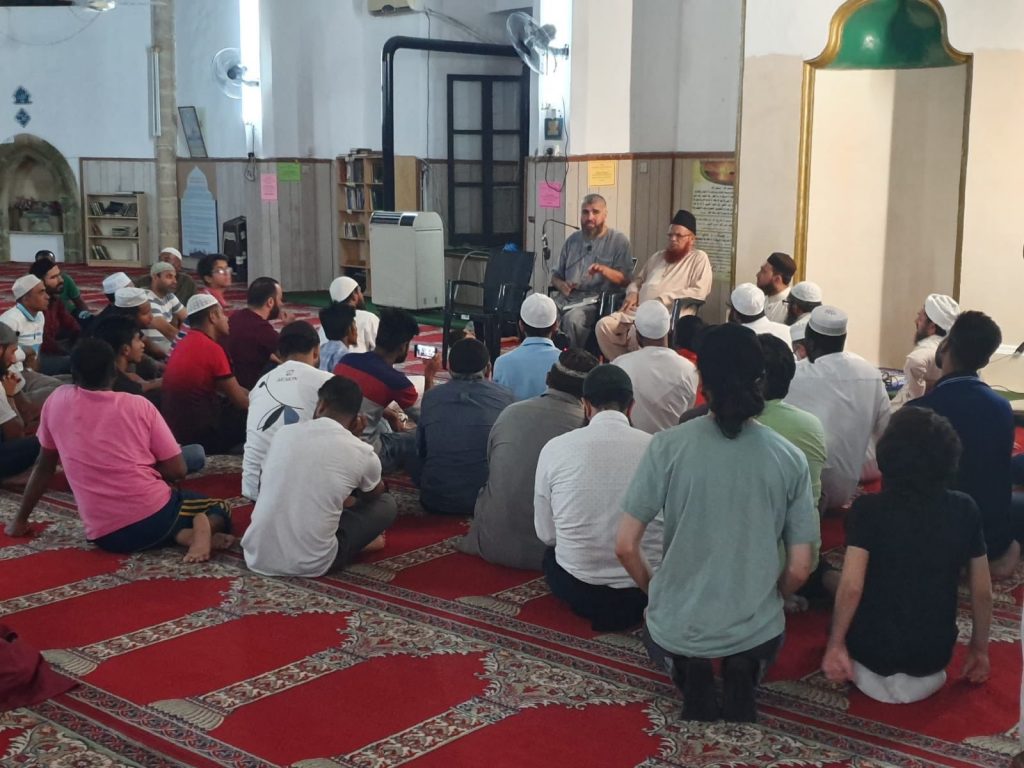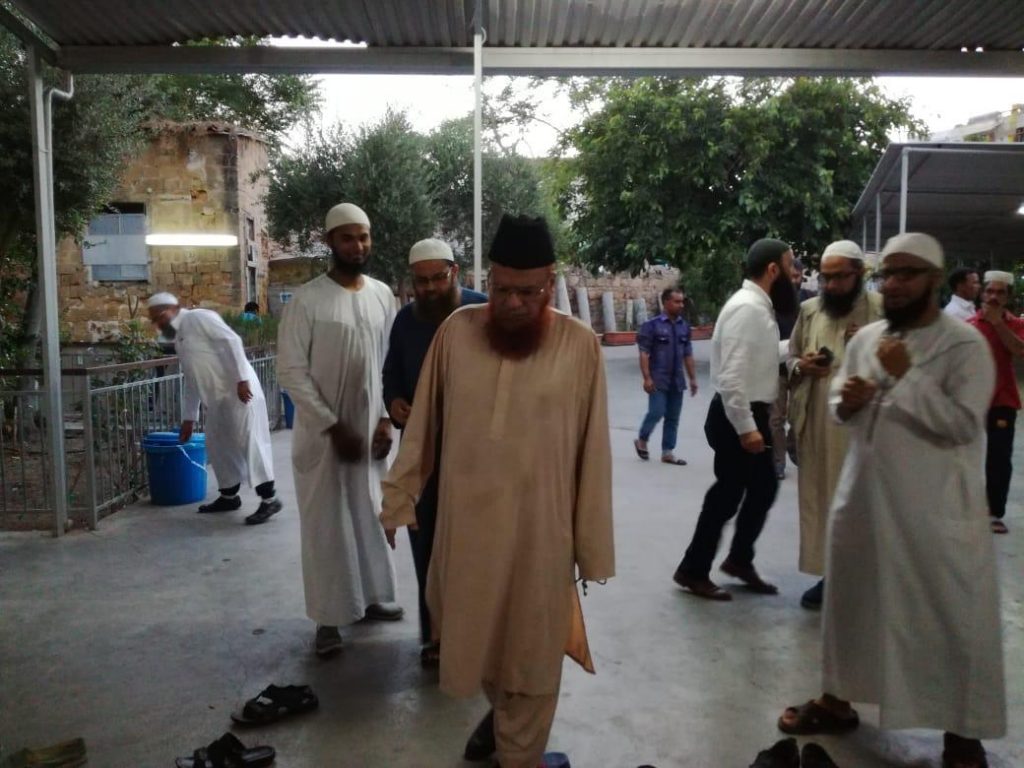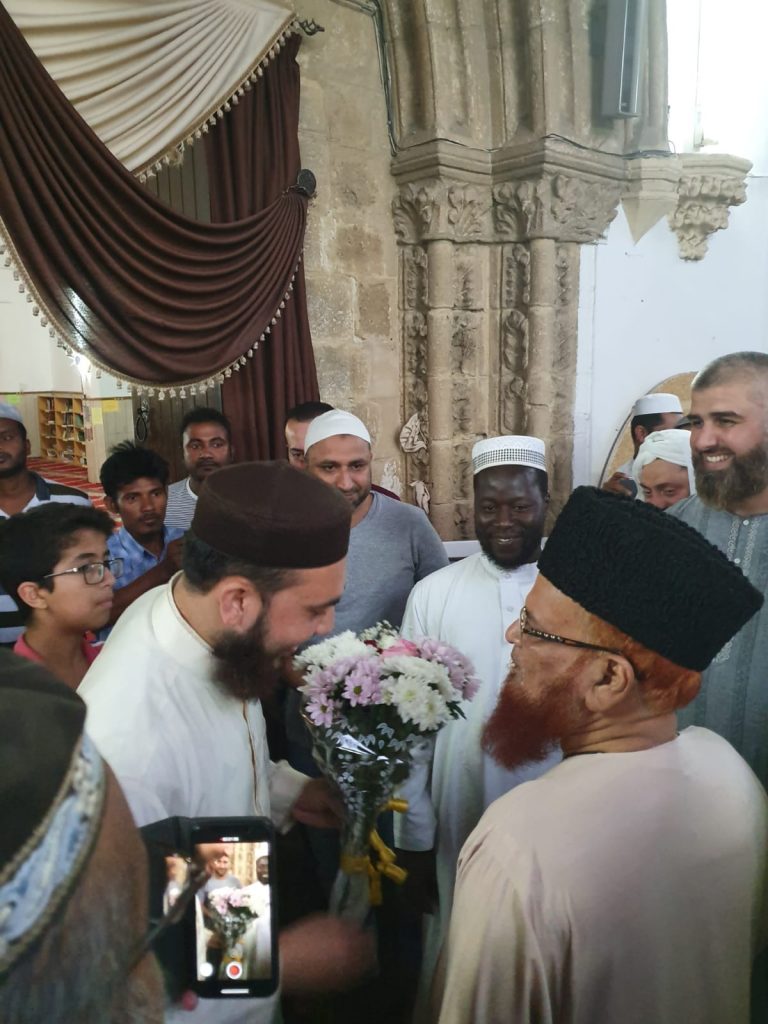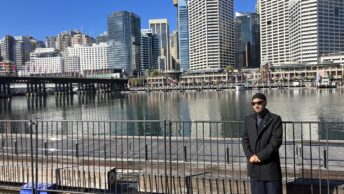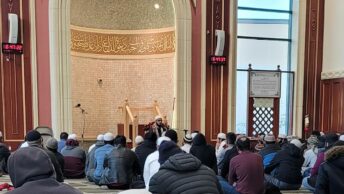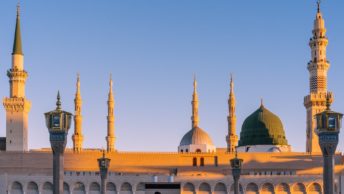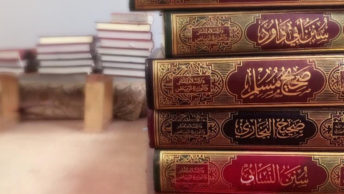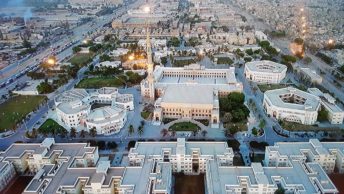In the name of Allah, the Most Compassionate, Most Merciful
Introduction
By the grace of Allah Almighty, in July 2019 I was privileged to travel (along with some others) in the company of my beloved teacher and mentor Shaykh al-Islam Mufti Muhammad Taqi Usmani (may Allah protect him) for five days to the islands of Malta and Cyprus. It has been approximately twenty years since I was an official student at Dār al-ʿUlūm in Karachi (Pakistan) and thus had the opportunity to study by the respected Shaykh. During student days, it was very difficult to get to know him on a personal level – and like many other students he barely knew my name – due to his extremely busy activities and travels.
After completing my studies in Karachi, I endeavoured to remain in contact with him by way of correspondence and staying in his company during his visits to the UK. He gradually became more acquainted with me, as he would see me at every program/location during his UK visits such that he once (in 2012) jokingly remarked, “It seems that you are omnipresent (hādir and nāzir)!” During the past few years, Allah granted me the opportunity to stay more in his company – especially during his travels to counties such as Denmark, UAE, Bosnia, Uzbekistan, and lately Malta and Cyprus. The recent trip to Malta and Cyprus was unique for me on many different levels. The respected Shaykh normally travels with his wife (may Allah protect her), but on this occasion she did not accompany him. As such, it presented me with a golden opportunity to remain in his service more than usual. I feel it was the closest I have been with him, Al-hamdulillah.
In this article, I would like to share some aspects of this special trip and the various beneficial points (fawā’id) learnt from the respected Shaykh. The idea is not to present it as a travelogue; rather, describe some unforgettable moments with our dear and beloved Shaykh and highlight some of his teachings. I have tried my best to be as accurate as possible, but it is nonetheless a human endeavour – and that too of an incompetent one. Thus, if a mistake or inaccuracy is detected, rather than attributing it to the respected Shaykh I request the readers to attribute it to me. May Allah forgive our shortcomings, Āmīn.
Travelling with Shaykh Increases Admiration for him
It is normal for students to have love and respect for their teachers, and it is no different for me in relation to my teachers. It is also somewhat common for a degree of informality to set in, and at times decrease in admiration and reverence, when more time is spent with someone especially during travels when one is able to witness things closely. Despite this, it would perhaps not be an exaggeration to say that every journey with Shaykh al-Islam Mufti Muhammad Taqi Usmani (may Allah protect him) has increased my love and admiration for him, and many others feel the same. I cherish every new moment that I am able to spend in his company, treating every moment as if it is the first time I am meeting him. Each moment in Shaykh’s company brings about a desire in the heart to be more with him. I saw much good in terms of his knowledge and piety whilst in the classroom, I observed many of his good qualities whilst accompanying him during his UK visits, but what I have witnessed during these past few journeys abroad is beyond description. Words cannot do justice or truly describe his personality which beautifully resembles that of Prophetic qualities and demeanour.
He is extraordinarily compassionate in his treatment of and conduct towards fellow travellers, always giving consideration to their comfort; and the manner in which he treated this insignificant being was similar to how a father would look after his young son. As an example, I recall that once during dinner I intimated to a person to pass me a particular dish; the Shaykh saw me and asked what I wanted, and despite in the midst of conversation he ensured that the particular dish reached me. Both the Shaykh and I enjoy chewing the pān leaf; hence throughout our journey he would tell me to come to his room and help myself with the ingredients he had brought with him. A young brother in one of our previous trips, with whom the Shaykh was not acquainted previously, had a disability which restricted his mobility. The Shaykh would ask him daily how he was feeling, whether he slept well or not, etc. The examples of how he personally takes interest in the well-being of others are countless such that a separate article would be required just to highlight them.
Caring for others is a distinctive Prophetic quality. The entire life of Allah’s Messenger (peace and blessings be upon him) was dedicated to caring for others. He was constantly concerned about the well-being of others, whether of this life or the hereafter. May Allah Almighty grant us the ability to inculcate this trait within us, Āmīn.
Departure from Birmingham Airport
After spending the weekend of 6/7 July 2019 in Birmingham (UK) in relation to the “finality of Prophet-hood” (khatm nubuwwa) conference, Shaykh al-Islam Mufti Muhammad Taqi Usmani (may Allah protect him) departed Birmingham International Airport on the morning of Monday 8 July 2019. His academic assistant Mawlānā Shakir Jakhura (who had travelled with him from Pakistan), brother Yahya (of Turath Publishing) and I accompanied the Shaykh on the flight to Malta via Brussels. Some other brothers travelled from Manchester (UK) and joined us in Malta.
The journey from Birmingham to Malta in his company comprised invaluable lessons Subhān Allah. As per his usual demeanour, the Shaykh was casual, jovial and extremely down-to-earth throughout the journey, and treated his fellow companions as friends and colleagues rather than students and inferiors. He was very reluctant – despite his old age – for anyone to hold his luggage throughout the trip. We all had only hand-luggage and he was wary of the fact that everyone has their own luggage to carry. I finally managed to convince him by checking in my luggage and then presenting the argument that I have nothing to carry, which he then reluctantly accepted, but still insisted on carrying one of his two bags.
The Shaykh remained calm and patient throughout, despite some unsavoury treatment from a member of the airport staff at Birmingham airport. Nearly an hour was spent in examining our luggage and they opened his luggage and carefully examined every item. The airport staff member was being unduly unreasonable, but he remained calm and even thanked her after the ordeal was over. Throughout the journey, he was polite and thankful to various airport officials, and always kept a smile on his face.
Whilst on the plane from Birmingham to Brussels, we sat in close proximity to the Shaykh. He was either engaged in recitation of the Qur’an, reading a book or taking a nap. Whilst in transit in Brussels, I said to him, “Shaykh, I really love you a lot for the sake of Allah; and as per the hadith, one should inform another of this love.” He responded by saying, “I also have love for all of you, all my friends and all the Muslims.” May Allah make this love and bond based on faith (iman) a means of us all being together in Paradise, Āmīn.
The Visit of Malta
The primary reason for visiting Malta – in addition to meeting local Muslims and for the purpose of da’wa – was to witness a country where one of the greatest scholars of the Indian Subcontinent Shaykh al-Hind Mawlānā Maḥmūd al-Ḥasan (passed away in 1339AH/1920AD, may Allah have mercy on him) was imprisoned by the British for three years between 1917 and 1920. Shaykh al-Hind was joined by his able student and another prominent Subcontinent scholar Shaykh al-Islam Mawlānā Ḥusayn Aḥmad Madanī (passed away in 1377AH/1957AD, may Allah have mercy on him) and some other colleagues. Malta is a Southern European country consisting of a collection of islands located in the Mediterranean Sea, 50 miles south of Italy. The three major (and only inhabited) islands are Malta, Gozo and Comino; and the capital city of the country is Valletta. Malta became a British colony in 1815, serving as a station for ships and the headquarters for the British Mediterranean Fleet. The British felt it was an ideal location to house war prisoners, given its remote location.
Shaykh Ḥusayn Aḥmad Madanī (may Allah have mercy on him), the student of Shaykh al-Hind, later authored a book in which he described the details of their imprisonment in Malta. Titled ‘Safarnāma Asīre Malta’ (Travelogue of the Captive of Malta), he mentions therein that they were arrested in Makka, then transferred to Cairo where they were imprisoned for a few days. They were then moved to Malta on 21 February 1917, where they were kept in captive for three years until their release in June 1920. As such, these two great scholars and their colleagues were imprisoned some 4000 miles away from their homeland of India. Another scholar, Shaykh Mawlānā Muhammad Miyā (Allah have mercy on him) also compiled a book in this regard, titled ‘Asīrāne Malta’ which has been translated into English under the heading ‘The Prisoners of Malta.’
Our respected Shaykh Mufti Muhammad Taqi Usmani (may Allah protect him) has a special spiritual and academic bond with Shaykh al-Hind Mawlānā Maḥmūd al-Ḥasan (Allah have mercy on him). His father, the late Grand Mufti of Pakistan, Mawlānā Mufti Muhammad Shafi’ (passed away in 1396AH/1976AD, may Allah have mercy on him) enjoyed a close relationship with Shaykh al-Hind. Although his father was not ‘formally’ a student of Shaykh al-Hind, as he was a student of lower classes at the time, he would attend Shaykh al-Hind’s lectures on Ṣaḥīḥ al-Bukhārī whenever possible. His attendance was not merely a matter of routine; rather, he learnt many points from these lessons which he would often narrate in detail to his students and followers. Moreover, during free time when other students rested, Mufti Muhammad Shafi’ (may Allah have mercy on him) would sit in the company of Shaykh al-Hind between Asr and Maghrib prayers and thus benefit from him. When war broke out in the Balkans and Tripoli, Mufti Muhammad Shafi’ (Allah have mercy on him) went from village to village to raise funds under the directive of Shaykh al-Hind. After Shaykh al-Hind’s release and subsequent return to India, Mufti Muhammad Shafi’ had completed his formal studies at Dār al-ʿUlūm in Deoband and become a junior teacher at the said institute. At that time, he pledged his bay’a of tasawwuf/tazkiya to Shaykh al-Hind and spent more time in his company. (See: Mufti Muhammad Taqi Usmani’s ‘Akābīre Deoband kiya the’, translated into English by Turath Publishing under the title ‘The Great Scholars of the Deoband Islamic Seminary’).
Mufti Muhammad Shafi’ (Allah have mercy on him) would repeatedly mention Shaykh al-Hind to his children and students and often quote various incidents relating to him. Our Shaykh Mufti Muhammad Taqi Usmani (may Allah protect him) grew up hearing these stories and quotes of Shaykh al-Hind from his father, and thus one can only imagine how much love and affection they created in his heart – such that it prompted him to travel all the way to Malta despite old age. He had brought along the book ‘Safarnāma Asīre Malta’ (Travelogue of the Captive of Malta) with him, which he would occasionally read during our trip.
Remembering Shaykh al-Hind
As we were passing the harbour, on our way to the hotel after landing in Malta, our respected Shaykh Mufti Muhammad Taqi Usmani (may Allah protect him) cited the aforementioned book in which Mawlānā Madanī (may Allah have mercy on him) states that they spent six hours waiting at the port when arriving into Malta. Our Shaykh’s mind went back to 1917, imagining Shaykh al-Hind and his colleagues being brought into Malta, and he thus said, “They arrived at 10am and remained at the port for six hours until 4pm. Imagine how they must have felt when they arrived; they did not know anyone here. Various thoughts must have crossed their minds such as: why have we been brought here, how will we be kept here, what will happen to us, will we be executed or imprisoned, etc…”
He then mentioned that his father Mufti Muhammad Shafi’ (Allah have mercy on him) initially gave his pledge (bay’a)to Shaykh al-Hind [and later Hakim al-Umma Shaykh Mawlānā Thanawi], and would attend his gathering after Asr prayers which took place under the famous tree in the Mosque of Dār al-ʿUlūm in Deoband. He added that his father had a desire to study Ṣaḥīḥ al-Bukhārī with Shaykh al-Hind and thus delayed his final year studies for a year in anticipation of the latter’s return from Hajj – and in the interim, he studied some other books which were not part of the curriculum. However, Shaykh al-Hind did not return and instead imprisoned in Malta, and thus the following year his father studied Ṣaḥīḥ al-Bukhārī with Imam Anwar Shāh al-Kashmīrī (Allah have mercy on him). Later at the hotel, the respected Shaykh mentioned that Shaykh al-Hind would eat very less, especially during the days of captivity in Malta. He would barely eat food, and suffice on tea and the pān leaf.
In response to my mentioning of Mawlānā Ḥusayn Aḥmad Madanī’s love for his teacher Shaykh al-Hind, our Shaykh added that Mawlānā Madanī had immense love (ishq) for his teacher and mentor Shaykh al-Hind (may Allah have mercy on both), which led him to accompany his teacher all the way to Malta. He quoted his father as saying that I saw Shaykh Mawlānā Madanī with my own eyes walking to the house of his teacher with a big water pot on his head and taking water to him, as part of preparations for Shaykh al-Hind’s daughter’s wedding.
Something about the Assassination Attempt
In relation to the recent assassination attempt on him, the respected Shaykh mentioned that on the day of the attempt it was the duty of another guard named Bilal to be with him, but he was delayed in arriving so another guard took his place and was eventually martyred. Bilal, who missed out on accompanying the Shaykh, later expressed sadness for not being able to accompany him and said, “I wish I was in place of the martyred guard!” The Shaykh added that in the aftermath of the assassination attempt, he felt a sense of sadness and regret for the families of those who were martyred, in that they gave their lives trying to protect him. However, he stated, when he visited their homes for bereavement, the family of the martyred guard said, “We are proud that he gave his life protecting you.” The mother of the martyred guard said, “If I had another son, I would be happy to sacrifice him also for you!”
Mention of Sicily
There was also a mention of Sicily (Arabic: Siqilliya), the largest Mediterranean island just off Italy and approximately 50 miles from Malta. The Shaykh expressed a desire in visiting it stating that Muslims ruled Sicily for many years like Spain. He added that the great Qadi As’ad ibn Furāt (may Allah have mercy on him) – who travelled from North Africa to study with Imam Muhammad ibn al-Hasan al-Shaybāni (may Allah have mercy on him) in Kufa, and reading to him each day when Imam Muhammad performed ablution for tahajjud prayers – began the Muslim conquest of Sicily. The Shaykh then quoted a few lines from the poetry of the famous Muslim poet Dr. Allama Iqbal on Sicily, which he had composed whilst passing the island on his return from London. He commented that Iqbal’s poetry consists of deep concern in the heart, as opposed to the poetry of some others.
At the Cemetery
Prior to reaching our hotel, we visited the Turkish Military Cemetery – an architectural site commissioned by the Ottoman Sultan Abd al-Aziz Khan after his arrival into Malta in 1874 for Muslim burials, and currently maintained by the Turkish government. Some Ottoman soldiers are buried at this cemetery, as well as Ḥakīm Nuṣrat Ḥusayn who was a colleague of Shaykh al-Hind Mawlānā Maḥmūd al-Ḥasan (may Allah have mercy on both). Shaykh al-Hind and his colleagues would visit this cemetery during their captivity in Malta, as outlined by Mawlānā Ḥusayn Aḥmad Madanī in his travelogue.
During such travels – like our trip to Uzbekistan – our respected Shaykh Mufti Muhammad Taqi Usmani (may Allah protect him) normally visits the graves of great scholars and pious men of Allah. Visiting graves, in general, is not only permitted but a Prophetic Sunna and means of reward. Allah’s Messenger (peace and blessings be upon him) said, “I used to forbid you from visiting graves; now, do visit them…” (Muslim), and “Visit graves, for it reminds one of his death” (Muslim). There are many reasons and benefits in visiting graves such as: a) acting upon the Prophetic recommendation; b) it being a means of remembering one’s own death, the hereafter and the mortal reality of this life; and c) benefitting the one in the grave by way of making duʿā’ for them and reciting Qur’an.
As we entered the cemetery, the respected Shaykh audibly uttered a general salām and duʿā’, in accordance with the Sunna, by saying: assalāmu ʿalaykum yā dār qawm mu’minīn, antum lanā salaf wa inna in shā Allah bikum lāhiqūn (peace be upon the inhabitants of this abode from among the believers; you have gone ahead of us and we shall, God willing, join you). He then related to us that there is a weak (da’if) narration in which Allah’s Messenger (peace and blessings be upon him) is reported to have said, “Whosoever recites Surat al-Ikhlās eleven times at a cemetery and dedicates the reward for all the inhabitants of that cemetery, he shall receive reward which is equal to the number of the deceased” (Al-Durr al-Mukhtār quoting Al-Dāraqutni, Suyuti in his Sharh al-Sudūr and Qurtubi in his Al-Tadhkira from Hafidh al-Silafi and others). Upon being asked, our respected Shaykh mentioned that sending the rewards of good deeds to the deceased (isāl al-thawāb) can be carried out from any location; however salām to the deceased can only be conducted at their grave. His normal habit, which I observed at various places, is to recite at the grave and then say assalāmu alaykum somewhat audibly when returning.
On Islamic Finance at the Malta Stock Exchange
Later in the afternoon, a meeting was arranged between Shaykh Mufti Muhammad Taqi Usmani (may Allah protect him) and the Executive Chairman of the Malta stock exchange. Whenever the respected Shaykh sees any opportunity to covey the teachings of Islam, he grasps it with both hands. Accordingly, he accepted to meet those at the Malta stock exchange despite the briefness of his visit.
At the meeting, he mentioned that awareness needs to be created within Malta regarding Islamic finance, and that Islamic finance is not only for Muslims; rather, it results in positivity for the entire economy and humanity at large. Islamic finance is the fastest growing financial system in the world, he said, and people need to understand the basic principles relating to it and its benefits. He highlighted the difference between conventional finance and Islamic finance explaining that conventional finance is not a real economy, rather it is an artificial system based much on derivatives; whilst Islamic finance is a real economy based on real assets. Thus, during the recent financial crises, Islamic banks suffered less in comparison to conventional banks. He stated that if this aspect is explained to the masses and awareness is created, it will help to promote it.
Moreover, he suggested, workshops should be arranged where Islamic finance experts explain to the masses the concept of Islamic finance. It would be useful to have a dialog on Islamic finance. He cited, as an example, his recent visit to the Higher School of Economics in Moscow where he delivered lectures and answered people’s queries on Islamic finance, which proved beneficial – they are now thinking of introducing Islamic sukuk. They took this step after a long process of dialog between them and experts in the field of Islamic finance. The same approach can be taken in Malta. Finally, he said, banks and financial institutions in Malta should at least consider introducing Islamic finance windows and products to cater for the needs of Muslims in terms of purchasing homes, cars, etc.
May Allah Most High make this meeting a means of good and a step towards the introduction of Islamic finance in the island of Malta, Āmīn. The Shaykh also had a meeting with the former Prime Minister of Malta at the hotel. However, I was unable to attend this meeting, hence not in a position to provide any details.
Enjoying Scenery and Understanding the Country
Whilst touring Malta, we visited the Upper Barrakka gardens and the adjacent fort in the capital Valletta, providing us with beautiful scenery and a panoramic view of the Grand Harbour and Mediterranean Sea in the distance. Our respected Shaykh always enjoys great scenery and the beautiful creation of Allah Almighty, and it was no different here. He stood marvelling at the view before his eyes. The men of Allah do not look at things superficially; rather, their sight goes beyond the external. Mountains, sea, rain, animals and all the various creations remind them of the Creator; and they reflect upon His qualities of perfection (kamāl), beauty (jamāl) and majesty (jalāl). Allah Most High says, “Surely, in the creation of heavens and earth, and the alternation of night and day, and the ships that sail in the sea, carrying that which benefits men, and in the water Allah sent down from the sky, then revived with it the earth after it was dead, and in every creature He has scattered on it, and in turning of winds, and in the clouds employed to serve between heaven and earth, there are signs for those who have sense” (Qur’an 2: 164). On numerous occasions, I have witnessed the Shaykh marvelling at Allah’s creation, and then quoting and explaining verses of the Qur’an and describing the power and majesty of Allah Almighty.
At one point, the Shaykh – whilst observing the scenery – cited the following verse, “Our Lord, You have not created all this in vain” (Qur’an 3: 191). He then said, “We sometimes think the various creation of Allah such as mountains and animals have no purpose; there is a purpose behind each and every creation of Allah, and nothing has been created in vain.” At another point, he mentioned how once during his visit to Australia he underwent Snorkelling and witnessed the incredible underwater world at the Great Barrier Reef. We merely look at the surface of the sea, he said, but there are mountains, trees, flowers, colourful stones, various colourful types of fish and animals below it. He mentioned that Australia and New Zealand are both very beautiful countries.
Moreover, the Shaykh is always very keen on learning about the country he is visiting – in terms of its history, landscape, archaeology, culture, economy, law, politics, and religion especially the situation of the Muslims. As we toured in the vehicle, our local guide – who spoke both Arabic and English fluently – provided a running commentary on the sites we were passing and described how Muslims influenced Malta. The Shaykh was listening very attentively and occasionally asking questions; for example, one such question was, “What is the measurement of this city?” This shows his zeal and eagerness to constantly increase his knowledge and understanding, whether in relation to Islamic sciences or worldly aspects. May Allah grant us all the same zeal, Āmīn.
Origins of the Bible
Whilst touring, a discussion took place around the origins of the bible. The respected Shaykh explained that the original injīl revealed unto Sayyiduna Eisā/Jesus (peace be upon him) does not exist. The current four gospels (Mark, Matthew, Luke and John) comprise [only] of the biography and teachings of Prophet Eisā (peace be upon him), authored by people later on. However, some parts of the original injīl seem to have appeared in these current gospels. Once someone published the “Nazareth Gospel Restored”, indicating that the current gospels are not the original injīl, rather the original is the “restored” Nazareth gospel.
Moreover, he said, the chains of transmission (isnād) to even these four gospels are defective and broken (mursalāt). Many Christians hold that John the Apostle (Yuhanna), the disciple of Prophet Eisā (peace be upon him), is the author of the ‘Gospel of John’. However, a thorough examination shows that it was not written by him, rather by someone else called John the Elder – a student of Saint Paul. As such, it is incorrect to attribute the gospel to John the Apostle; a fact which many Christians are also in agreement with. Ironically, this is the only gospel in which there is mention of the concepts of Trinity, original sin and atonement/redemption (kaffara). As for Matthew and Luke (who was a medic), they were also both students of Saint Paul. The gospel of Barnabas is also a biography of Prophet Eisā (peace be upon him) and it too is not authentically linked with a proper chain; though better than the other gospels, and entails the name of our Prophet (Allah bless him and give him peace).
The respected Shaykh then added that he has highlighted in his critical analysis of the history and origins of the bible that the disciples of Prophet Eisā (peace be upon him) were not willing to accept Saint Paul. Barnabas was the first disciple who accepted Saint Paul and convinced the other disciples to accept him. Later, a difference occurred between Barnabas and Saint Paul, because of which they separated. As a result, there is no mention of Barnabas in the latter chapters of the bible. (For a detailed understanding of this issue, one may refer to Mufti Muhammad Taqi Usmani’s work titled “What is Christianity” available in English and his Urdu masterpiece “Bible se Qur’an tak” (From the Bible to the Qur’an) which essentially is a commentary of Shaykh Rahmatullah Kirānawi’s Izhār al-Haq).
I then asked him about the story which he normally relates on the dispute that took place within the Christian world in relation to the authentic version of the bible. A conference was called by Saint Constantine during third century AD in Nice (France) in which it was decided by Christian leaders that all the versions of the bible should be placed on a table at night in a locked room, and thereafter they should spend the entire night praying in their own homes and asking God to make the incorrect versions fall off the table. Accordingly, they prayed and upon their return in the morning, only four versions remained on the table. Thus, it was decided that the current four gospels are authentic. The author of this incident states that such a major decision was taken based on this occurrence, but no one really paid attention to the fact or questioned as to who held the keys of the room that night!
The respected Shaykh however, after relating this incident to us, stated that he has not seen this narration/story in any Christian source. A Muslim author, analysing the history and origins of the bible, has mentioned it and references it to a source, but the Shaykh could not find the source which he referenced it to. The Christian sources merely state that a conference/gathering took place and these four gospels were agreed upon.
Talk at the Al-Fatih Mosque (Malta)
A speech of Shaykh al-Islam Mufti Muhammad Taqi Usmani (may Allah protect him) was arranged after Maghrib prayers at the Al-Fatih Mosque in the Floriana area of Malta, delivered mainly in Arabic and translated simultaneously into English. The audience consisted of some 30-40 Muslims of Somalian, Pakistani, Syrian and various other origins, along with the UK group accompanying the Shaykh. Despite the respected Shaykh travelling continuously since the very early hours of the morning (departing the UK around 5am), and naturally fatigued, he delivered his speech for nearly 45 minutes with ultimate zeal and vigour! Many speakers, in such a scenario, would shorten their speech and be happy to rest for the night. However, our dear Shaykh was fully motivated – the zeal, desire and determination with which he delivered the talk, despite his old age, is a real lesson for us all. In fact, this was the way of all the Prophets (peace and blessings be upon them), who were committed and determined in conveying the message and calling towards Allah (da’wa). They would not become fatigued or fed up easily in their quest to do so. The respected Shaykh seems to have inherited this specific feature and characteristic of Prophetic da’wa.
Moreover, the attendance here was somewhat less in comparison to other occasions. Consider the fact that here is an individual whom scholars (ʿulamā’) from across the globe are extremely eager to meet and sit in his company to benefit, at whose feet even Arab scholars sit as students including the Imam of the Prophet’s Mosque, whose daily Ṣaḥīḥ al-Bukhārī lessons are attended by around 400 students at Dār al-ʿUlūm Karachi, and whose public discourses are sometimes attended by thousands of people – yet the 30-40 people in the island of Malta made no difference to his approach. His determination and resolve was the same, if not more! This also was the Prophetic way; they did not look at numbers, since for them there was always only ‘The One’ whom they wanted to please. Whenever an opportunity arose to convey a good message, the Prophets of Allah (peace and blessings be upon them) considered it a blessing and grasped it with both hands, regardless of how disheartening the situation may be. May Allah Almighty allow us to follow in their footsteps, Āmīn.
Nevertheless, the respected Shaykh began his speech by outlining two main reasons behind his visit to Malta. He explained, “The first is to visit a country where the great Indian scholar Shaykh al-Hind Mawlānā Maḥmūd al-Ḥasan of Deoband (may Allah have mercy on him) was imprisoned. He had initiated a movement to liberate India from British rule because of which he was imprisoned in Malta for approximately three years, and thus he experienced a lot of suffering here. Shaykh al-Hind Maḥmūd al-Ḥasan was a great and pious scholar who taught Ṣaḥīḥ al-Bukhārī for many years and his students are spread all over the world. Modern science has affirmed that voices of people remain in the atmosphere and do not disappear. As such, the environment where people have worshipped Allah, supplicated Him, made istighfār and performed prostration (sujūd) is blessed. The second reason is to meet and visit the Muslims of Malta, in order to establish a bond with them based on faith.”
Thereafter, he suggested three things in order to build a strong and constant connection with Allah Most High:
“Firstly, allocate a time daily, even if for half an hour or fifteen minutes, to learn the religion (dīn) in relation to all aspects of life such as worship, business and marriage. It is not necessary for every individual to become a scholar, but itis necessary to learn the rules of Shari’a that relate to all areas of one’s life. One should also try and understand the book of Allah, the message of God sent to us, by reading a translation and exegesis (tafsīr) of the Qur’an. Also read and study the biography (sīrah) of Allah’s Messenger (peace and blessings be upon him). After reading and studying these, supplicate Allah (duʿā’) to keep you steadfast on the dīn.
Secondly, constantly and excessively engage in supplicating Allah at every juncture of life such as when entering the house, riding the means of transportation, etc. With this, one’s connection with one’s Lord will become strong and constant.
Thirdly, engage in thanking Allah (shukr) for all of His bounties. We have been granted countless bounties by Allah such as our eyes, ears, hands, legs, sustenance (rizq), etc.; and all these bounties require shukr. If one is thankful to Allah, He will provide more – as per the Qur’anic directive.”
Remembering Al-Aqsa/Al-Quds
On the second day, on our way to the ferry port (to take the ferry for Gozzo island), the respected Shaykh was asked regarding Al-Aqsa and the Palestinian-Isra’ili conflict. He mentioned that he still remembers the night when Al-Aqsa was taken over by the Isra’ilis in 1967. People stayed awake all night listening to the news on Radio Amman and Radio Al-Quds. At around 11pm, the Amman radio station suddenly announced that it was broadcasting on behalf of Amman as well as Al-Quds, which came as a shock and indicated that Al-Quds station had been taken over. The feelings at the time are indescribable.
He further stated that sadly many Arabs, especially Egyptians under Jamal Abd al-Nasir, fought on the grounds of Arab nationalism rather than Islam. The then foreign minister of Egypt said that to attribute this war to Islam is akin to admitting defeat – we are fighting on the basis of Arab nationalism, in that this is Arab land in which non-Arabs have entered! Shaykh added that the war is a great lesson for us; the Isra’ilis were surrounded by Arab countries yet defeated them. At the time, he wrote an article on the causes and reasons behind the defeat of the Muslims. May Allah Most High liberate Al-Quds and bring about peace, Āmīn.
Discussions on the Ferry
The respected Shaykh, like all of us, enjoyed the pleasant cruise on the ferry to the island of Gozzo. Whilst seated on the ferry, he was asked about his view on organ donation amongst other matters. He mentioned that his position and the position of his Dār al-ʿUlūm (Karachi) has not changed, which is one of tawaqquf (i.e. judgment is suspended and not inclined either way).
He went on to say that it is not possible to experience the real pleasure of original texts when reading translations (such as Qur’an translations). He added that the example of a translation is like when a person feels an itch on his back and requests another person to scratch him – the one scratching may go to the right, left, ahead and behind, and it is normally difficult to reach the exact location of the itch. A translation is similar, in that it is virtually impossible to attain the precise experience of the original text. He then quoted, as an example, the Qur’anic verse “and Allah‘s command is pre-determined by destiny” (Qur’an 33: 38).
Upon being asked regarding his knowledge of the English language, he mentioned that whilst he was working on his critical analysis of the bible (titled “From the Qur’an to the Bible”), he would initially refer to the dictionary a few times in a single paragraph during his study of English works on the bible. Gradually, he became more familiar with the language. When he was appointed as a judge in the Shari’a court of Pakistan, he would initially write his court edicts in Urdu; however, over time, he started to write them in English.
Admiring the Sea
Whilst standing on the ferry deck and marvelling at the Mediterranean Sea, our dear and respected Shaykh began describing the unique characteristics of the sea and ocean. He mentioned that there is unique a enjoyment associated with the sea. He quoted the statement “Time writes no wrinkle on thine azure brow” in that thousands of years have passed on the sea and it has become old, yet there is no sign of old-agedness. He added that he once travelled for a whole week in the sea – one week on his way to Jedda for Umra and one week on his return. The ship was relatively empty, with some 70-80 people on board, and he witnessed some amazing scenery related to the sea. He explained, “The waves and tides create different colours in the water, the sea never ages or gets dirty, and numerous types of creatures reside in it such that their number is tenfold to those that live on land. These creatures are born in the water; they reside, relieve themselves and die in the sea, yet there is no change to the sea/ocean. The sea appears uniquely level in the distance, without being uneven or a curve on it. The Pacific Ocean is considered the deepest, at one point the depth is seven miles.” He added that whilst on the aforementioned Umra trip, each day at sunrise he would witness fishes leaping out of water into the air in order to catch the early morning sunlight. (May Allah grant us all the ability to ponder and reflect on the creation of Allah in a similar manner, Āmīn).
Inside the Old Prison in Cittadella/Citadel (Gozo Island)
At Gozzo Island, we visited the Citadel (an ancient fortified city) and toured the old prison located inside it, as well as the adjacent museum. The prison comprises some grim small cells from centuries gone by. Some of the streets of this old fortified city had Arabic names such as “Triq Bieb L-Imdina” which is a distorted version of “Tariq Bāb al-Madina” (Madina Gate Street). Our respected Shaykh mentioned that it seems it was probably indicative of the direction of Madina al-Munawwara. This was the norm in olden times, he said, in that gates and streets were named by cities – such as Damascus gate – indicating the direction of that city.
We all sat cramped into one such cell for a while, and the Shaykh was reflecting on how if felt being imprisoned in it. There is a lesson to take here too for those who reflect and ponder.
Remembering Kashmir
In the vehicle, on our return from Gozzo Island, the respected Shaykh began mentioning the beauty of Kashmir. He then read out to us a considerable part of a poem which he had composed during the Indo-Pakistani war of 1965, titled “O Valley of Kashmir.” The poem depicts the beauty of Kashmir – its valleys, trees, water springs and rivers – and describes how it complains of the disloyalty of Muslims, but reminds that the time will soon arrive when Muslims retake it. In light of recent events in Kashmir, I pray Allah Most High help the oppressed Kashmiri Muslims and grant them victory against the oppressors, Āmīn.
Night Stroll in Mdina
We visited Mdina – a fortified medieval town located on top of a hill in the centre of Malta, which served as the island’s capital from antiquity to the medieval period. The town is confined within its walls – with narrow streets, beautiful architecture and panoramic views of the island. It is suggested that Muslim Arabs built the town around the third century, given the name Mdina – from the Arabic “Madina” which means town or city. The town resembles ancient Muslim towns/cities like Damascus, Marrakesh and Jerusalem.
Our whole group strolled around the streets of this beautiful town in the company of our dear and respected Shaykh (may Allah protect him), whilst our local host explained the history and facts concerning the town. We passed by a beautifully designed church building which our host felt was historically a Mosque and thereafter converted into a church. This building was of particular interest to the Shaykh, and he mentioned that the exterior of the building indicates it may have previously been a Mosque. There was also some discussion regarding how the building stood and the possible direction of the Qibla.
The respected Shaykh’s mind went back to the former glory days of the Muslims. Thus, whilst walking through the narrow streets of Mdina, he read out a few lines from the famous Urdu poem of Dr. Allama Iqbal regarding the “Island of Sicily” – which remained under Muslim rule for approximately 250 years and was once a centre of Islamic civilization. It was a unique experience hearing the following lines of the poem from the respected Shaykh – expressed with deep enthusiasm and vigour – whilst walking the streets of Mdina (Malta):
مُردہ عالَم زندہ جن کی شورشِ قُم سے ہُوا
آدمی آزاد زنجیرِ توہّم سے ہُوا
غلغلوں سے جس کے لذّت گیر اب تک گوش ہے
کیا وہ تکبیر اب ہمیشہ کے لیے خاموش ہے؟
[The dwellers of the desert] whose cry of arise gave life to a lifeless world,
And freedom to men from the chains of superstition.
Whose reverberations delight the ear to this day,
Is that cry of takbīr (God is Great) silent forever?
Preventing Evil (Munkar)
On our return from Mdina, our local Arab host brother asked the respected Shaykh a question on how to deal with sinful acts that take place in one’s presence, and that it is sometimes difficult to prevent evil. In response, the Shaykh provided a short, yet comprehensive, explanation of the famous hadith “Whosoever of you sees an evil, let him change it with his hand; and if he is unable to do so, then [let him change it] with his tongue; and if he is unable to do so, then [let him change it] with his heart – and that is the weakest of faith” (Bukhari and Muslim).
He explained that “changing the evil with one’s heart” means to detest and abhor the sinful act in the heart. The continuous dislike of the sin will create a burning desire/yearning (hurqa) in the heart [for the sinful act to cease] and may eventually lead to the second level [changing with the tongue], and then to the first level [changing with the hand]. As such, this dislike of the sin and yearning in the heart will eventually enable a person to verbalize his dislike and thus convince others to abstain from the sin. However, he said, it is a gradual process and requires time and constant striving.
Upon the host suggesting that it may be better to migrate to another country due to the unIslamic environment in Malta, the Shaykh stated that migrating is all well and good but where would one migrate to? One may end up migrating to a country where the environment is similar to the environment in the country of one’s residence, or even worse – since the situation is worse off in many Western countries. As such, one may have no choice but to work towards preserving one’s faith and that of one’s children whilst residing in these countries.
At Verdala School and the Advice of Shaykh al-Hind
On the morning of Wednesday 10 July (our final day in Malta), we visited the Verdala International School located in the Fort Pembroke region of the country. The reason for visiting the school was on the assumption that Shaykh al-Hind Mawlānā Maḥmūd al-Ḥasan and his colleagues (may Allah have mercy on them) were imprisoned here, and that it was previously a fort and prisoner-of-war camp. However, it was later suggested by some of our colleagues that this may not have been the site of their imprisonment, since the imprisonment took place in Fort Verdala and we were at Fort Pembroke (although the school was called ‘Verdala’ International School).
Nevertheless, as we walked around the school compound and the surrounding area, I requested the Shaykh to share with us something relating to Shaykh al-Hind (may Allah have mercy on him). The respected Shaykh related from his father that, “When Shaykh al-Hind returned to India after his imprisonment in Malta, he once mentioned – during his daily post Asr gathering (majlis) – that he reflected in the solitude of Malta about the reasons behind the decline of Muslims, and concluded that there are two reasons: 1) The abandonment of the Qur’an, and 2) division within the Umma. Shaykh al-Hind then pledged to spend the reminder of his life addressing these two issues. Accordingly, he initiated a campaign to establish Qur’an schools (makātib) throughout India; and in order to remove divisions, he began making links with Aligarh University, Jami’a Miliyya and other such seminaries.”
Our respected Shaykh Mufti Muhammad Taqi Usmani (may Allah protect him) then commented, “Imagine, this was a lesson learnt by an 80 year old man – who had spent his entire life studying and teaching Islamic sciences – in the solitude of Malta. Mawlānā Madani (may Allah have mercy on him) has written that Shaykh al-Hind would always be engaged in the remembrance of Allah (dhikr) during the imprisonment, thus what may Allah have inspired his heart during those moments of dhikr and connecting with Him? As such, the Qur’an must not be abandoned, and disunity and friction between Muslims should never be tolerated. The three-year imprisonment in Malta taught these two lessons to Shaykh al-Hind (may Allah have mercy on him).”
On the way to Verdala School, the Shaykh also described how Shaykh al-Hind Mawlānā Mahmud al-Hasan (may Allah have mercy on him) was first kept as a prisoner with non-Arabs and then moved to the Arab Camp. The Arab camp had relatively better facilities and he felt more comfortable intermingling with the Arabs, some of whom actually pledged the bay’a of tazkiya/tasawwuf on his hands.
Intricacies of Legal Language
After visiting the Verdala School, on the way to our next and final destination in Malta, the respected Shaykh began describing his time as a judge in the Shari’a courts of Pakistan. He also highlighted the meticulous nature of, and the intricacies involved in, writing legal edicts, and that at times changing even one word can have a significant impact on the intended meaning.
As an example, he stated that once a legal verdict was prepared in which it was written “precepts prescribed in the Holy Qur’an and Sunna.” The Shaykh suggested that the “in” should be changed to “by” (precepts prescribed by the Holy Qur’an and Sunna), upon which some colleagues remarked what difference will changing one small word make. However, another colleague Mawlānā Zafar Ahmad Ansāri (an expert in law, philosophy and other subjects, with whom our respected Shaykh worked at the Council of Islamic Ideology of Pakistan in the 70’s & 80’s) remarked that the suggestion was due to a potential risk. Precepts prescribed ‘in’ the Qur’an and Sunna means that only those precepts and laws will be accepted that are explicitly mentioned in the Qur’an and Sunna, whilst precepts prescribed ‘by’ the Qur’an and Sunna infers that laws/edicts that are derived from the Qur’an and Sunna will also be accepted, even if they are not explicitly mentioned therein.
The Shaykh then described the functions and operational system of the Shari’a bench at the Supreme Court of Pakistan during his time. He gave a mention to his historical judgement on interest (riba) delivered at the Supreme Court, and his subsequent removal from the bench by the then President General Pervez Musharraf. Listening to the details directly from the Shaykh was immensely informative and food for much thought. May Allah Most High bring about goodness and positivity to the judicial and constitutional frameworks of Pakistan, Āmīn.
Meeting the Imam of Mariam Al-Batool Mosque
Our final visit before heading to the airport was the Mariam Al-Batool Mosque, located in the town of Paola. Financed by the former Libyan leader Mu’ammar Gaddafi, it is the largest and only officially recognized Mosque in Malta – with a proper dome and minaret structure. We offered our zuhr prayers here, and then entered the office of the Imam Shaykh Muhammad al-Sa’di (of Libyan origin), who has been the Imam of the Mosque since 40 years. Our respected Shaykh Mufti Muhammad Taqi Usmani and the Imam engaged in a 20 minute discussion in Arabic.
Our respected Shaykh mentioned Shaykh al-Hind saying that he – along with his colleagues such as Mawlānā Ḥusayn Aḥmad Madanī, Shaykh Uzayr Ghūl and Hakīm Nūsrat (Allah have mercy on them) – was imprisoned in Malta. He added, “Hakīm Nūsrat passed away in Malta and is buried in the Turkish military cemetery, although we could not locate his grave upon visiting the cemetery. The others, however, were released and upon returning to India began a successful political campaign to free India from British rule.”
He continued, “Shaykh al-Hind (may Allah have mercy on him) translated the Qur’an during his imprisonment. He also taught Ṣaḥīḥ al-Bukhārī, Tafsīr al-Jalālayn and other books during his time in the Arab camp, and many Arab inmates pledged on his hands (bay’a). He would constantly remain in dhikr, supplication (duʿā’), meditation (murāqaba) and giving da’wa to other prisoners. The purpose of our visit to Malta, along with meeting local Muslims, was a desire to visit and see the place where our Shaykh al-Hind and his colleagues were imprisoned, although we did not find the exact location except some indicators.”
The meeting ended with the Imam gifting the respected Shaykh a copy of the translation of the Qur’an in Maltese, which was translated by a non-Muslim professor of Arabic at the University of Malta and thoroughly reviewed by the Imam.
Generosity of Shaykh al-Islam
Whilst waiting at the airport for our 3pm flight from Mata to Cyprus, Shaykh al-Islam Mufti Muhammad Taqi Usmani (may Allah protect him) treated everyone with fresh juice, and insisted on paying for it. One of the special qualities of our respected Shaykh, which in fact is a Prophetic character-trait, is that he is very generous. I have personally witnessed his generosity on many occasions. His normal practice, during his visits to various countries, is that he usually gifts something to his hosts in different cities and locations – and his visits are extremely frequent! The children of his various hosts and associates are also usually given a monetary gift by the Shaykh (my children have received a monetary gift from him on more than one occasion, Al-Hamdulillah). During his recent visit to the UK, around ten brothers had accompanied him to North Wales for sight-seeing and rest. During an expedition, he insisted on treating everyone with coffee and snacks.
The Shaykh also has a habit of spending in the path of Allah and noble causes. Once, whilst in Copenhagen (Denmark), he advised the local community to begin plans on establishing a Mosque. In order to emphasize the seriousness of the matter, he asked them to open a charitable/Mosque bank account and donated the first two thousand dollars from himself and his wife. During a visit once to the headquarters of a UK based charity, he donated a considerable amount to be spent on the poor and needy. In fact, the Shaykh has a fixed amount which he donates on a regular basis to those who are in need. The examples of his generosity are so many that a separate article can be penned on just this aspect. May Allah grant us the ability to inculcate this quality within us, Āmīn.
The Visit of Cyprus
We arrived into Cyprus (known in Arabic as Qubrus) on the evening of Wednesday 10 July from Malta – one Mediterranean island to another! Mufti Muhammad Taqi Usmani (may Allah protect him) himself highlighted the reason for visiting Cyprus in his discourse (majlis) which he delivered after his return to Pakistan. Below is the summary of his speech:
Cyprus is a large island located in Europe with unique and enlightening history. Sayyiduna Muʿāwiya (may Allah be pleased with him) was the governor of Shām during the Caliphate of Sayyiduna Umar and Sayyiduna Uthman (may Allah be pleased with both). Umar ibn al-Khattab (Allah be pleased with him) had banned Muslim armies from embarking on expeditions beyond the sea due to the risks involved – it was not safe in those days to travel by sea. During the Caliphate of Uthman (Allah be pleased with him), however, Muʿāwiya (may Allah be pleased with him) saw that the Romans/Byzantine had taken control of surrounding areas and there was a real possibility of an imminent attack against the Muslims. [and using Cyprus as a launch point] He thus sought the permission of Uthman (Allah be pleased with him) to travel by sea and attack Cyprus, since it was the closest island. After initial reservations, Sayyiduna Uthman (Allah be pleased with him) granted permission.
In granting permission, a hadith was also taken into consideration in which Allah’s Messenger (peace and blessings be upon him) gave a glad tiding. Umm Ḥarām bint Milḥān (may Allah be pleased with her), the aunt of Sayyiduna Anas (Allah be pleased with him), was related to the Prophet (peace and blessings be upon him) through fosterage (raḍāʿah), and thus the Prophet would often visit her and her husbandʿUbādah ibn al-Ṣāmit (Allah be pleased with both) and sometimes rest in their house. Since the Prophet (peace and blessings be upon him) was her mahram, she would sometimes also massage his head. One day, as she was massaging his head, the Prophet (peace and blessings be upon him) fell asleep, and a short while later woke up smiling. Umm Ḥarām (Allah be pleased with her) asked, “What made you smile, O Messenger of Allah?” He replied, “Some people of my umma were shown to me [in my dream] fighting in the way of Allah, sailing in the middle of the sea like kings sitting on their thrones [i.e. with comfort and honour].” She said, “O Messenger of Allah, pray that Allah makes me one of them.” He said, “You shall be one of them.” He then went to sleep again and a short while later woke up smiling, so she asked again, “What made you smile, O Messenger of Allah?” He replied [again], “Some people of my umma were shown to me [in my dream] fighting in the way of Allah, sailing in the middle of the sea like kings sitting on their thrones.” She once again asked him to pray that Allah makes her from them. He replied, “You shall be among the first ones” (Bukhari). Allah’s Messenger (peace and blessings be upon him) – in this hadith – did not only prophesize about two navel campaigns, he also offered a form of glad tidings in that they will be accepted by Allah Almighty.
Nevertheless, Muʿāwiya (may Allah be pleased with him) sent a fleet via the sea into Cyprus, and Umm Ḥarām and her husband (may Allah be pleased with them) both joined the group. The Prophecy of Allah’s Messenger (peace and blessings be upon him) came to fruition, as the Muslim army attacked Cyprus and conquered it. It was the first time Muslims had entered Europe. Umm Ḥarām (Allah be pleased with her), either when entering Cyprus or upon her return, fell off the animal she was riding and broke her neck, and as a result passed away [and thus buried in Cyprus].
Moreover, graves of another six companions are suggested to be in Cyprus. When visiting Cyprus, a unique emotion is felt – thinking about the Companions (may Allah be pleased with them) who travelled to such a distant location, which took them many days, and all of their sacrifices.
In some narrations, an eye-catching point is mentioned. When Muslims completed the conquest of Cyprus, the CompanionAbu al-Dardāʾ (may Allah be pleased with him) – who was also part of the fleet – began to shed tears. Upon being asked why he was crying at an occasion of happiness, he presented a striking reply. He said, “I am thinking that the previous rulers of Cyprus enjoyed much glory and were renowned for their might and power the world over; yet, when they turned away from Allah and immersed themselves into disbelief and sins, Allah made us overcome them and their glory disappeared. Today, we have conquered them, but I fear that tomorrow if we also turn away from Allah and disobey Him, our victory will also turn into defeat.”
Today, we are able to witness with our own eyes what Sayyiduna Abu al-Dardāʾ (Allah be pleased with him) feared; Cyprus is no longer in the hands of Muslims. The island, for a while, was a point of contention between Greece and Turkey, after which the UN stepped in and divided it into two parts. What saddens is that the Greeks are Christians and non-Muslims, but they have a law banning casinos in areas under their control. On the Turkish side (where mostly Muslims reside), there is no such law and it is full of casinos. A lot of tourists actually visit the Muslim part in order to visit casinos. Is there any surprise, then, if Allah defeats the Muslims? Indeed, there are also Mosques and some Muslims are involved in da’wa, but many Muslims – in particular the younger generation – are only Muslim by name… (Islāhi Majlis at Dār al-ʿUlūm Karachi, 14 July, 2019)
Shaykh al-Islam’s Consideration of others
We spent our first night in Cyprus at a hotel in the southern coastal city called Larnaca. The next morning (Thursday), my dear friend Mawlānā Shakir Jhakura (assistant of Shaykh al-Islam with whom I shared a hotel room throughout our stay and learnt much from his company) and I went for a post-fajr stroll outside our hotel on the coast – most of our colleagues had gone back to sleep after fajr prayers. The normal habit of our respected Shaykh during the trip (and indeed most of our group) was to take breakfast at around 8/9am. However, on this particular day, he decided to eat breakfast earlier.
As I was completing the walk, Shaykh called me on my mobile and said after the opening salām exchanges, “I am proceeding down to the hotel restaurant for breakfast. If you wish, you can join me; and if you would like to continue your walk, or have a rest, then you may do that.” The Shaykh’s manner of asking me to join him for breakfast shows how particular he is about the comfort of others. He could have simply sufficed on mentioning that he is about to go for breakfast; but instead, he took his time in explaining the various options, as not to burden the other person.
It reminded me of what I heard directly from our respected Shaykh. The renowned Shaykh al-Hadith Mawlānā Muhammad Zakariyya Kāndahlawi (may Allah have mercy on him) once said to our respected Shaykh when the latter visited him in Madina al-Munawwara, “Listen, throughout your stay here in Madina al-Munawwara, you eat with me. However, if someone invites you for dinner then accept it, and there is no need to notify me as well.” In asking Mufti Muhammad Taqi Usmani to eat with him every day, Shaykh al-Hadith Mawlānā Muhammad Zakariyya (may Allah have mercy on him) took into consideration that he may be invited by someone else too. In such a scenario, Mufti Taqi Usmani may wonder whether to accept the invite; and if he does wish to accept it, he will be burdened in having to notify him. As such, from the outset, Shaykh Muhammad Zakariyya (Allah have mercy on him) clarified all scenarios in order not to inconvenience him!
This is the manner of thinking of great people, and this is what staying in the company of such great people teaches a person. May Allah allow us to also learn and implement the basic etiquette (adāb) of interaction and dealing with others, Āmīn. A good book to study in this regard is Shaykh Abd al-Fattah Abu Ghudda’s brief, yet comprehensive, work titled “Min Adab al-Islam” – translated into English under the heading Manners in Islam.
At the Grave of Umm Haram (may Allah be pleased with her)
After breakfast, we visited the resting place of the female Companion Umm Ḥarām bint Milḥān (may Allah be pleased with her) whose story was mentioned above. We first entered the Ottoman designed Mosque built next to her grave, performed the prayer of greeting the Mosque (tahiyyat al-masjid), and thereafter proceeded to the room where her grave is located. The respected Shaykh (and us) stood in front of the grave and recited portions from the Qur’an and offered salām. Thereafter, he turned towards the Qibla, with the grave behind him, and supplicated (made duʿāʾ).
Thereafter, we all returned to the main prayer hall of the Mosque where the Shaykh delivered a short lesson (dars) on the story and virtues of Umm Ḥarām (Allah be pleased with her) – based on some hadiths and narrations relating to her (collected by Mawlānā Yusuf Shabbir who was part of the UK group). Much of what Shaykh mentioned during this lesson has been covered above in light of his discourse in Dār al-ʿUlūm Karachi (under the section “The visit of Cyprus”). Nevertheless, some additional points mentioned are as follows:
1) The literal translation of the wording in the hadith is that “Umm Ḥarām (may Allah be pleased with her) would pick out fleas from the head of Allah’s Messenger (peace and blessings be upon him).” However, this literal meaning is not intended; rather, it is a way of describing a head massage for comfort. If, during the massage, she found a flea she would pick it out – not that the Prophet (peace and blessings be upon him) had a lot of fleas in his head.
2) Imam Bukhari (Allah have mercy on him) has formed a special chapter-heading: “Conducting business in the sea” – in order to establish that travelling by sea is permitted. The prevention mentioned in some narrations, and the ban from Sayyiduna Umar (Allah be pleased with him), was due to external reasons.
3) The narrations differ in regards to the time of Umm Ḥarām’s passing away. Some mention that it was just after the Muslims entered Cyprus, whilst others state it was upon their return. The Shaykh said he feels the latter is more accurate, since Allah’s Messenger (peace and blessings be upon him) stated that “Muslims will engage in battle” indicating that she passed away after taking part in the campaign.
4) Umm Ḥarām (may Allah be pleased with her) was part of the first Muslim army to cross the sea. The second was during the expedition to Constantinople (Al-Qūstutīnīyya).
5) Upon being asked regarding what one should recite at graves, the Shaykh said, “Surat Yāsīn, Sūrat al-Mulk and, if time does not permit, Sūrat al-Ikhlāṣ thrice with Sūrat al-Fātiḥa.”
6) The Shaykh expressed his happiness for having visited Cyprus and appreciated the invite from Shaykh Hānīf Dudhwala (of Muslim Welfare Institute, UK, and the chief instigator of the trip). He added that he had never imagined visiting the grave of Umm Ḥarām (may Allah be pleased with her).
Unforgettable Moment in the Mountains of Cyprus
One of the highlights of the entire trip, at least for me, was the time spent in the company of our dear and beloved Shaykh at a barbecue in the Troodos Mountains of northwest Cyprus. After offering zuhr prayers in congregation and waiting for the barbecue to commence, we all sat around the Shaykh and asked him a few light-hearted questions.
Seven Occasions of Happiness
Shaykh Hānīf Dudhwala asked the first and perhaps most intriguing question. He requested the Shaykh to share with us some of the most memorable moments of his life and occasions of happiness. The respected Shaykh responded by listing seven such occasions, as follows:
- When he undertook the journey by sea to the two sacred lands (haramayn) for Umra (1963).
- When his father kissed him on the forehead, as he was bidding him farewell to leave for Africa (1975).
- When the Qādiyani/Ahmadiyya were declared as non-Muslims after his book “The Qādiyani Sect and the Position of the Muslim Umma” was presented before the National Assembly of Pakistan (1974).
- Upon the enforcement of penal law in Pakistan after his drafting of Islamic laws (1979).
- When he wrote the final sentence of his Arabic commentary on Ṣaḥīḥ Muslim and thereby reaching its completion (1994).
- Upon the completion of his translation of the Noble Qur’an into the Urdu language (2008).
- Upon the completion of his translation of the Noble Qur’an into the English language (2005).
Listening to him describe these seven “memorable” moments with ultimate humility, yet with internal happiness, was in fact a memorable moment for us all – a memorable moment hearing about the memorable moments! Due to the unique nature of Shaykh’s answers, I decided to write a separate article on it with some additional commentary, which can be read here.
Feeling Disheartened in Efforts of Dīn
The next question was regarding how to deal with feelings of dejection and loss of hope due to not seeing the fruits of one’s efforts and hard work? The respected Shaykh answered, “In almost every praiseworthy act, one comes across a point/stage when one begins to lose interest and feels disheartened. I have faced this situation in most of my writing works, and also when working for the advancement of Islamic banking. This is a test from Allah Almighty, whether one discontinues the effort or forces himself and continues. It is important not to lose hope and discontinue; rather, one must persevere with the work, along with turning to Allah and supplication (duʿā). One should say, “O Allah, I am trying to work in your cause but finding it difficult to continue; please remove this difficulty and assist me.”
The Shaykh then quoted an Urdu couplet of his late poet brother Zaki Kayfi (Allah have mercy on him) in relation to not seeing the fruits of one’s hard work despite trying. He says, “If the destination is not reached then let it be, as I am not saddened; at least I have footsteps in every path of longing.”
Thereafter, he quoted his own Urdu couplet which states:
قدم ہیں راہِ اُلفت میں تو منزل کی ہوس کیسی؟
“When your foot is in the path of love, then why crave the destination;
یہاں تو عین منزل ہے تھکن سے چُور ہو جانا
here the actual destination is to drain yourself of energy.”
He explained, “If an effort of dīn is carried out with sincerity, then each step along the way is a destination – the results are in the hands of Allah. The destination for a slave is attaining the pleasure of Allah, not what one identifies as the destination. This is the secret. If Allah does not want the end result to occur, then that is His choice. It is mentioned in a narration that when Sayyiduna Ali (may Allah be pleased with him) was on his way to the Siffīn battle, he was asked whether he will be victorious? He responded in the negative, upon which he was asked as to why he was going? He replied, “This is an obligation on me.” As such, one’s real destination is to attain the pleasure of Allah Most High. The condition, however, is to work in a correct manner and with sincerity – and by this, the work itself will become the destination, and not the end result.
Personalities who Influenced Shaykh al-Islam
I then asked regarding the great personalities and scholars who have had the most influence on him. He mentioned that in terms of tazkiya/tasawwuf – along with his father – he was most influenced by his two Shaykhs: Dr ʿAbd al-Ḥayy ʿĀrifī and Shaykh Mawlānā Masihullah Khan (may Allah have mercy on both). He added that initially he wanted to give his pledge (bay’a) to his father, for he admired and loved him the most – his love for his father was in a way a student loves his Shaykh, not merely father-son affection. However, his father felt that a father-son relationship can become a barrier to proper reformation (islāh), and thus took him to Dr ʿAbd al-Ḥayy ʿĀrifī (Allah have mercy on him). At first, he did not feel fully committed to Dr ʿĀrifī, but gradually – as he spent more time in his company and attended his gatherings – he felt convinced. He further said that after the passing of Dr ʿĀrifī (Allah have mercy on him), he turned to Shaykh Masīḥullāh Khan – and clearly the source of both these two Shaykhs was Hakīm al-Umma Shaykh Mawlānā Ashraf Ali Thānawi (Allah have mercy on him).
In terms of scholarship (ilm) and piety – along with his father – he was most influenced by firstly Shaykh Mufti Muhammad Hasan (may Allah have mercy on him), the founder of Jami’a Ashrafiyya in Lahore (Pakistan). He said, “A special feeling of spiritual light (nur) was sensed in the gathering of Mufti Muhammad Hasan (Allah have mercy on him). I was only around twelve or thirteen at the time, and actually contemplated giving him bay’a – whenever I thought about giving bay’a to someone, he would come to my mind. Mufti Muhammad Hasan (Allah have mercy on him) was also very knowledgeable. During a visit once to Lahore with my mother, I spent a month studying at Jami’a Ashrafiyya. One of our teachers had to take leave, so we requested Mufti Muhammad Hasan to find an alternative teacher, but he put himself forward. As such, he taught me and a few of my colleagues a couple of books on Arabic grammar and logic (Sharh Jāmi and Sharh Tahzīib). Despite not teaching these books for many years, his knowledge of grammar and logic was astonishing. Another personality was Shaykh Mawlānā Muhammad Yusuf Binnorī (Allah have mercy on him) – whose knowledge, character, humility and other qualities really stood out. I also had the honour of accompanying him on many trips.”
The Shaykh was asked about Sayyid ʿAṭāʾ Allah Shāh Bukhārī (may Allah have mercy on him) amongst other scholars. He mentioned that Shāh Bukhārī (Allah have mercy on him) held him in his lap and blessed him with duʿā during childhood when he came to visit his father. He concluded by saying, “Visiting/witnessing scholars itself is a blessing.”
Approach in Writing Books
The Shaykh was asked about his personal approach to writing books. He responded, “Before commencing any book, I perform the prayers of guidance (istikhāra) and need (hājah) and supplicate Allah. I say, “O Allah, if Your pleasure is in me writing this book then let it be completed, otherwise destroy it – even if half has been completed.”
Upon being asked, the Shaykh stated that whilst he was writing his Arabic commentary on Ṣaḥīḥ Muslim, titled Takmila Fath al-Mūlhim, references he was in need of regularly – such as Fath al-Bāri, Umdat al-Qāri and Al-Ubbi – would remain on the desk in front of him, and he would be seated on the floor in the old library of Dār al-ʿUlūm Karachi. He would refer to others books, scattered around him on the library shelves, as and when needed. He added that he was very well aware of the location of each book within the big library.
Upon being asked, the Shaykh mentioned that in Hanafi fiqh he has benefitted the most from Badā’i al-Sanā’i of Imam Kāsāni, and secondly Radd al-Muhtar of Imam Ibn Abīdin (Allah have mercy on both).
Balance between Work and Family Life
The final question was regarding how to create a balance between family life and the work of dīn. The Shaykh explained that people normally ask him how he is able to take time out for relaxation/vacations with family in the middle of so much work, adding that it is a blessing from Allah that he is also able to enjoy himself with family/friends and travel to different locations. However, he always endeavours to keep some work with him during his travels, whether in the plane, airport lounge or other places (although slightly less now due to old age). He said, once whilst on a flight from Pakistan to the UK, a flight attendant made a remark saying he (the Shaykh) will open his laptop after take-off and close it upon reaching London.
The respected Shaykh mentioned that throughout his life he has tried his best to manage his time carefully. Many years ago, he used to (for a specific duration) perform his Zuhr prayers at a nearby Mosque located outside of the Dār al-ʿUlūm seminary. The time travelling to and from the Mosque would be spent in editing and checking fatāwa. At home, when waiting for food to be prepared and laid out, he tries to complete a task or two. He added that he usually pre-plans his activities for the day; for example, if he is scheduled to travel to the city, he will plan from beforehand what work will be done during the journey. As a result, he says, “I do not know the roads of Karachi very well, since I am usually busy in doing some work.”
He advised that fixing a manageable schedule is important in one’s life – taking into consideration rest, spending time with family and other needs. Once the schedule is made, it is necessary to follow it by exerting pressure on yourself. As an example, he related an incident in relation to when he was writing the book ʿUlūm al-Qur’an (An Introduction to Qur’anic Sciences); he said, “Our beloved and eldest brother Zaki Kayfi (Allah have mercy on him) would visit us in Karachi from Lahore; we would all sit with him as a family and enjoy his company after Asr prayers including my father. I was once seated in the get-together with my ʿUlūm al-Qur’an work, interchanging between writing and joining in with the conversation. My brother remarked, “How are you doing two things together; either join in with us or do your work?” Upon hearing this, my father Mufti Muhammad Shafi’ (may Allah have mercy on him) said, “This is the conduct of those who are serious with work.”
May Allah allow us all to manage and utilize our time wisely, and grant us the good of this life and the next, Āmīn.
Heartfelt Speech at Umariyya Mosque (Nicosia)
On Thursday evening, Shaykh al-Islam Mufti Muhammad Taqi Usmani (may Allah protect him) delivered a very pertinent and emotional English speech at the Umariyya (Omeriye) Mosque in Nicosia (Cyprus) on “maintaining faith and Islamic identity living in Cyprus.” Some 150-200 people of diverse ethnic backgrounds attended the talk which was delivered after Maghrib prayers. An audio recording of the full speech has been uploaded onto YouTube and can be heard here. Nevertheless, below is a summary of the speech:
“I am very privileged to be visiting my Muslim brothers in this part of the world and I respect this land, for it was the first part of Europe that was enlightened by Islam. Cyprus embraced Islam and was ruled by Muslims during the Caliphate of Sayyiduna Uthman ibn Affān (may Allah be pleased with him). As such, this is the first part of Europe where the teachings of Islam were introduced by the Companions who came here.”
After mentioning the (previously mentioned) story of Umm Ḥarām bint Milḥān (may Allah be pleased with her), the conquest of Cyprus under Sayyiduna Muʿāwiya (may Allah be pleased with him), and the statement of Abu al-Dardāʾ (may Allah be pleased with him) on the day of the conquest, the Shaykh stated that indeed many Muslims living in Cyprus practise Islam, preserve their Islamic identity and are law-abiding citizens, Al-Hamdulillah. However, Muslims in general are suffering in different parts of the world; and the basic cause for this is [what was mentioned by Abu al-Dardāʾ], in that they – despite claiming to be Muslims – follow un-Islamic ways.
The verse of the Qur’an “O you who believe, take care of your own selves. The one who has gone astray cannot harm you, if you are on the right path” (5: 105) informs us that each person should take care of his or her own self first. We are always concerned about reforming others, but tend to forget our own selves. If each one of us reforms himself, then gradually the whole society will be reformed. Allah’s Messenger (peace and blessings be upon him) said, “When you perceive [four signs in the society] greed of wealth, preference of this life over the next, desires being followed, and every individual becoming self-opinionated; then take care of your own self and leave others.” These four signs are extremely prevalent in our society, hence we all need to take care of our own selves.
The Shaykh then gave some practical steps to reform one’s own self:
- Allocate some time daily to learn the dīn by reading the translation and meanings of the Qur’an and hadith such as Imam Nawawi’s Riyāḍ al-Ṣāliḥīn with family members. Thereafter, supplicate Allah by saying, “O Allah, I want to practise Islam and keep my children away from evils, so please guide us.” The power and importance of duʿāʾ should never be underestimated.
- Arrange regular gatherings where Muslims meet and discuss matters relating to their faith. The jamā’a tablīgh is carrying out great work which also needs to be enhanced further.
- Start each day by reciting Prophetic supplications after fajr prayers, as well as the supplications prescribed for other occasions. These supplications can transform one’s life. There are many books where these supplications are to be found such as Al-Ḥizb al-Aʿẓam, Al-Ḥiṣn al-Ḥaṣīn and Munājat Maqbūl. Memorize these supplications and make your children memorize them too.
Finally, with tears in his eyes, the Shaykh said, “I request all of you to remember me in your duʿāʾ. I am approaching 80 years of age [according to the lunar calendar], so I do not know if we will meet again or not, so please pray for me whether I am alive or have passed away.”
May Allah Almighty grant our dear Shaykh a long life; full of blessings, well-being and health, Āmīn.
At the grave of Some Companions in Northern Cyprus
On our final day (Friday 12 July, 2019), we visited the “Hazrati Omer Tekke” complex in the Turkish controlled part of Cyprus on the Northern coast. It is suggested that some companions are buried in the complex. We offered salām and recitedf ātiha at the graves of these Companions. Our respected Shaykh mentioned here that it appears they were part of a group which attacked Cyprus from the other side and thus met the army of Muʿāwiya (Allah be pleased with him) in the centre of the island.
Jumu’a Khutba at the Grand Mosque of Larnaca
We returned to Larnaca (southern Cyprus) where Shaykh al-Islam Mufti Muhamamd Taqi Usmani (may Allah protect him) delivered the Friday sermon (khutba) at the Grand Mosque (al-masjid al-kabīr), located only a few metres away from the beach. The full Arabic khutba on the topic of “God consciousness” (taqwa) is available at the following YouTube link. Nevertheless, below is a summary of his Arabic sermon:
“Allah Most High has commanded us in many verses of the Qur’an to attain taqwa. Taqwa means to be constantly conscious of the fact that Allah is watching our every action and statement. Once taqwa is achieved, it will prevent one from committing sins, as well as prevent crimes that take place in the world. One needs to always keep in mind that “You are being watched by Allah Almighty” in every aspect of life.
There are many ways to achieve taqwa such that some early scholars and saints said, “The paths to reach Allah are as many as the breaths of the creation.” The first obligation upon every Muslim, however, is to learn about the rules of Islam in terms of what is lawful (halāl) and unlawful (harām), especially in countries where Muslims are in the minority and Islamic madrasas are not prevalent. It is important to learn the injunctions of Islam relating to all aspects of one’s life such as marriage, work, etc.
I would like to suggest that each and every one of you specify a daily time where you and your children learn the book of Allah, in terms of recitation and its meanings. Secondly, read the hadiths of Allah’s Messenger (peace and blessings be upon him) in the form of books such as Al-Adab al-Mufrad of Imam Bukhari and Riyāḍ al-Ṣāliḥīn of Imam Nawawi, wherein the cream of hadiths have been gathered. Thirdly, supplicate Allah constantly and turn to Him. Say, “O Allah, I want to live a life in accordance with Your pleasure in this environment, so assist me and grant me the ability.” Allah Most High mentions the supplication of Sayyiduna Yunus (peace be upon him) which he said in the darkness of the fish’s stomach: “There is no god but You, Pure are You; Indeed I was among the wrongdoers” – and thereafter Allah said, “And this is how We rescue the believers” (Qur’an 21: 87-88). Undoubtedly, it does not mean that every believer will enter the stomach of a fish and be rescued by Allah by reciting this supplication; rather, the meaning is that Allah will save the believers from darkness – whether it is physical darkness or the darkness of sins. As such, we should supplicate Allah in a similar manner. By doing the above things, our lives will be in accordance with Allah’s pleasure.”
Fiqh Discussion at Lunch
After Jumu’a prayers, whilst having lunch at a nearby restaurant, a number of fiqh questions were brought up before our respected Shaykh. It is difficult to present the full context of his answers in this write-up, but in a nutshell he mentioned the following during this lunch as well as during some other gatherings:
- The language of the Friday sermon should be Arabic. However, if there is a pressing need and thus it is delivered partially in non-Arabic, then the obligation will be fulfilled and thus valid [but still disliked] according to the Hanafi School. If a few words are mentioned in non-Arabic, then it is permitted.
- Mosques in the West should have segregated facilities for women, although women should not be encouraged to pray at the Mosque rather at home – as per the hadith. At times, women are already out of their homes – such as for shopping – and thus will need a place to pray.
- The civil divorce in UK courts result in a non-revocable Islamic divorce (ṭalāq bāʾin) – if the husband files for the divorce, or gives his categorical consent if the wife files for it.
Bidding Farewell
It was an emotional moment for our whole group when we reached the airport to bid our dear and respected Shaykh farewell. On a personal level, these were some of the most amazing days of my life. As mentioned in the introduction, I was able to spend quality time with the Shaykh and serve him in his room, and feel that it was the closest I have been with him in terms of serving him, Al-Hamdulillah – in fact, the Shaykh himself mentioned this to me as we arrived at the airport.
We all embraced him one-by-one at the airport, as he departed for his return to Pakistan. May Allah protect him, grant him well-being (a’fiya) and health, bless him with the ability and strength to continue benefitting the Umma, and grant us the ability (tawfiq) to benefit from him and all our rightly-guided scholars, Āmīn.
Muhammad ibn Adam al-Kawthari
Darul Iftaa, Leicester (UK)
September 4, 2019
Images from the Trip
Click/Tap on Images to Enlarge

Turkish Military Cemetery (Malta) 
Turkish Military Cemetery (Malta) 
Turkish Military Cemetery (Malta) 
Malta Stock Exchange 
Whilst touring the Maltese Capital Valletta 
Whilst touring the Maltese Capital Valletta 
Whilst touring the Maltese Capital Valletta 
Whilst touring the Maltese Capital Valletta 
Whilst touring the Maltese Capital Valletta 
Whilst touring the Maltese Capital Valletta 
Ferry to Gozo Island and Citadel 
Ferry to Gozo Island and Citadel 
Ferry to Gozo Island and Citadel 
Ferry to Gozo Island and Citadel 
Ferry to Gozo Island and Citadel 
Ferry to Gozo Island and Citadel 
Ferry to Gozo Island and Citadel 
Ferry to Gozo Island and Citadel 
Fortified Town of Mdina 
Fortified Town of Mdina 
Fortified Town of Mdina 
At Verdala School (Malta) 
At Verdala School (Malta) 
Al-Fatih Mosque (Floriana, Malta) 
Al-Fatih Mosque (Floriana, Malta) 
Mariam Al-Batool Mosque (Paola, Malta) 
Larnaca (Cyprus) 
Larnaca (Cyprus) 
Larnaca (Cyprus) and the Grand Mosque 
Larnaca (Cyprus) and the Grand Mosque 
Larnaca (Cyprus) and the Grand Mosque 
Larnaca (Cyprus) and the Grand Mosque 
Mosque and Grave of Umm Ḥarām bint Milḥān (Cyprus) 
Mosque and Grave of Umm Ḥarām bint Milḥān (Cyprus) 
Mosque and Grave of Umm Ḥarām bint Milḥān (Cyprus) 
Mosque and Grave of Umm Ḥarām bint Milḥān (Cyprus) 
Mosque and Grave of Umm Ḥarām bint Milḥān (Cyprus) 
Mosque and Grave of Umm Ḥarām bint Milḥān (Cyprus) 
Troodos Mountains (Northwest Cyprus) 
Troodos Mountains (Northwest Cyprus) 
Troodos Mountains (Northwest Cyprus) 
Umariyya Mosque (Nicosia, Cyprus) 
Umariyya Mosque (Nicosia, Cyprus) 
Umariyya Mosque (Nicosia, Cyprus) 
Umariyya Mosque (Nicosia, Cyprus) 
Hazrati Omer Tekke (Northern Coast of Cyprus) 
Hazrati Omer Tekke (Northern Coast of Cyprus) 
Hazrati Omer Tekke (Northern Coast of Cyprus) 
Hazrati Omer Tekke (Northern Coast of Cyprus) 
Hazrati Omer Tekke (Northern Coast of Cyprus) 
Bidding Farewell (Cyprus Airport)

